iPhone 6 Plus vs Galaxy Note 4 camera shootout!
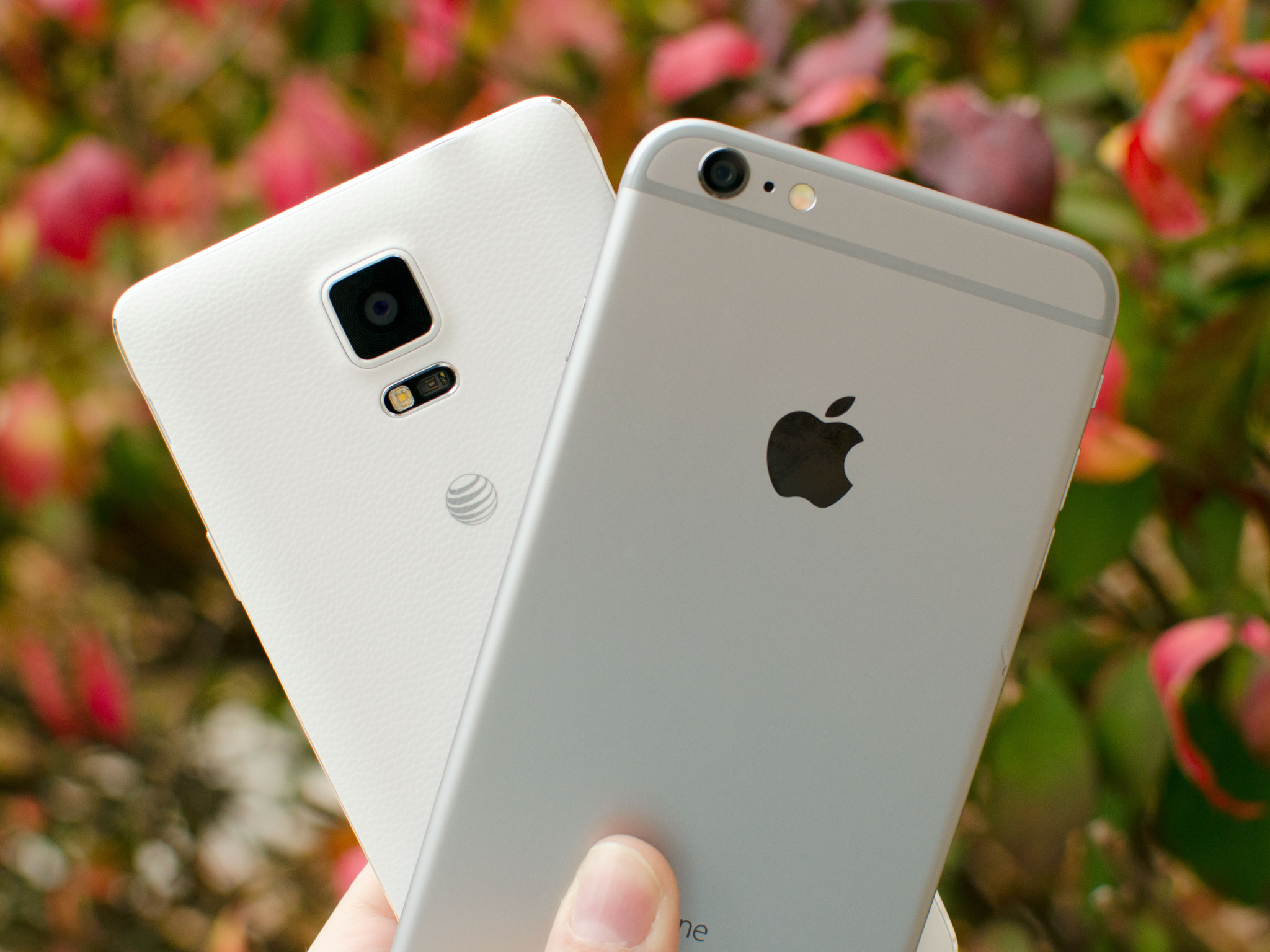
The iPhone 6 Plus is Apple's first "phablet" sized phone. That puts it in direct competition with other super-sized smartphones, particularly the brand new Samsung Galaxy Note 4. On paper, the Galaxy Note 4 has twice the megapixels, but does that translate into photos that are twice as good? If you're basing your next smartphone purchase on camera quality, you're probably more interested in how they actually perform in the real world. How's the color accuracy? What's the low-light performance like? From focus to exposure to white balance to everything else, which camera brings home the best shots?
iPhone 6 Plus vs Galaxy Note 4: Specifications
| Header Cell - Column 0 | iPhone 6 Plus | Galaxy Note 4 |
|---|---|---|
| Megapixels | 8MP | 16MP |
| Resolution | 2448x3264 | 5312x2988 |
| Pixel Size | 1.5µm | 1.12µm |
| Sensor Size | 1/3" | 1/2.6" |
| Aperture | ƒ/2.2 | ƒ/2.2 |
| Flash | Dual-LED | LED |
| OIS | Yes | Yes |
| Front camera | 1.2MP, ƒ/2.2 | 3.7MP, ƒ/1.9 |
Note: On desktop browsers you can enlarge all the images below. Also, EXIF data is provided for one image in each category.
iPhone 6 Plus vs Galaxy Note 4: General photography
From left to right: iPhone 6 Plus, Galaxy Note 4:
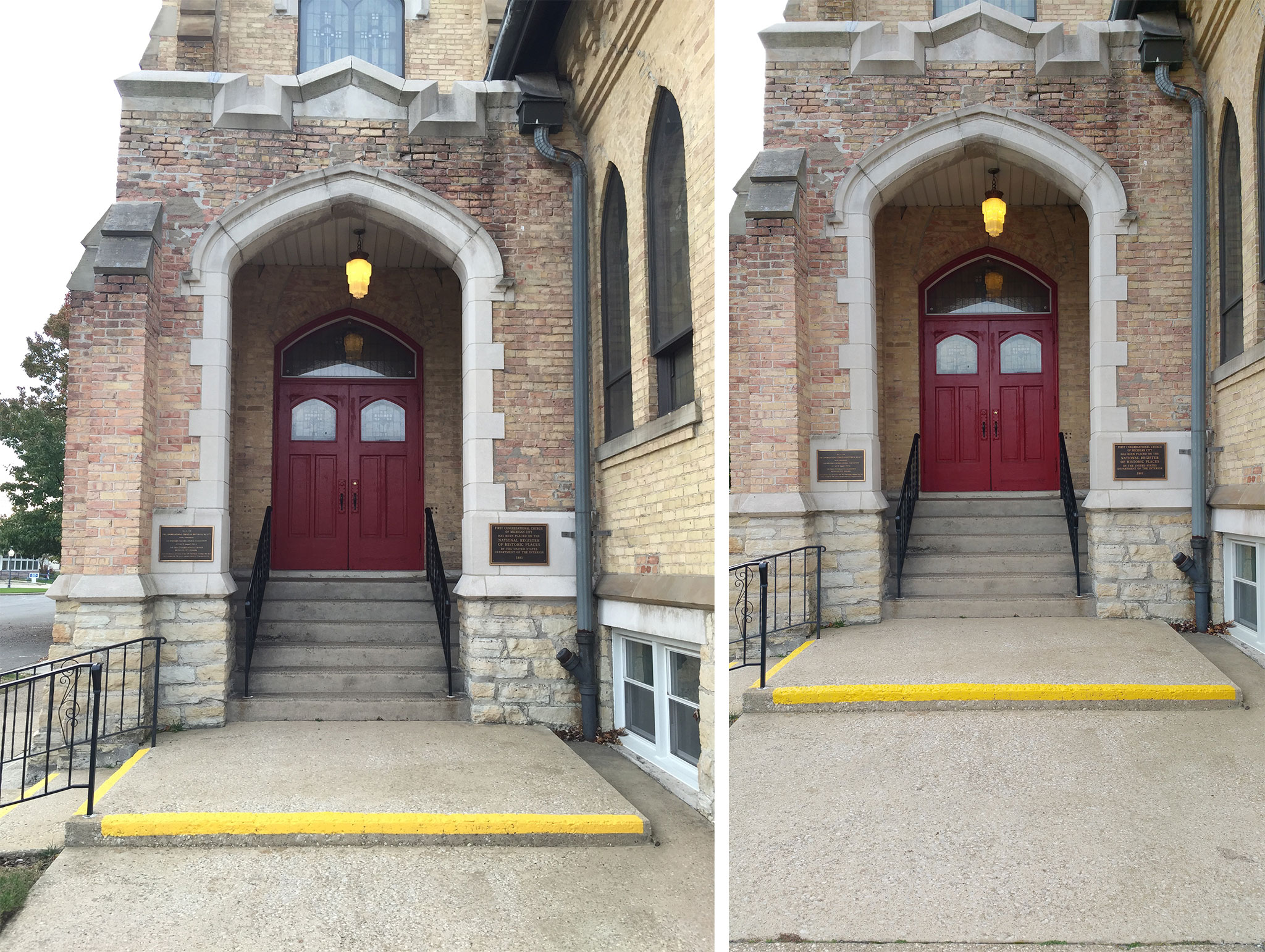
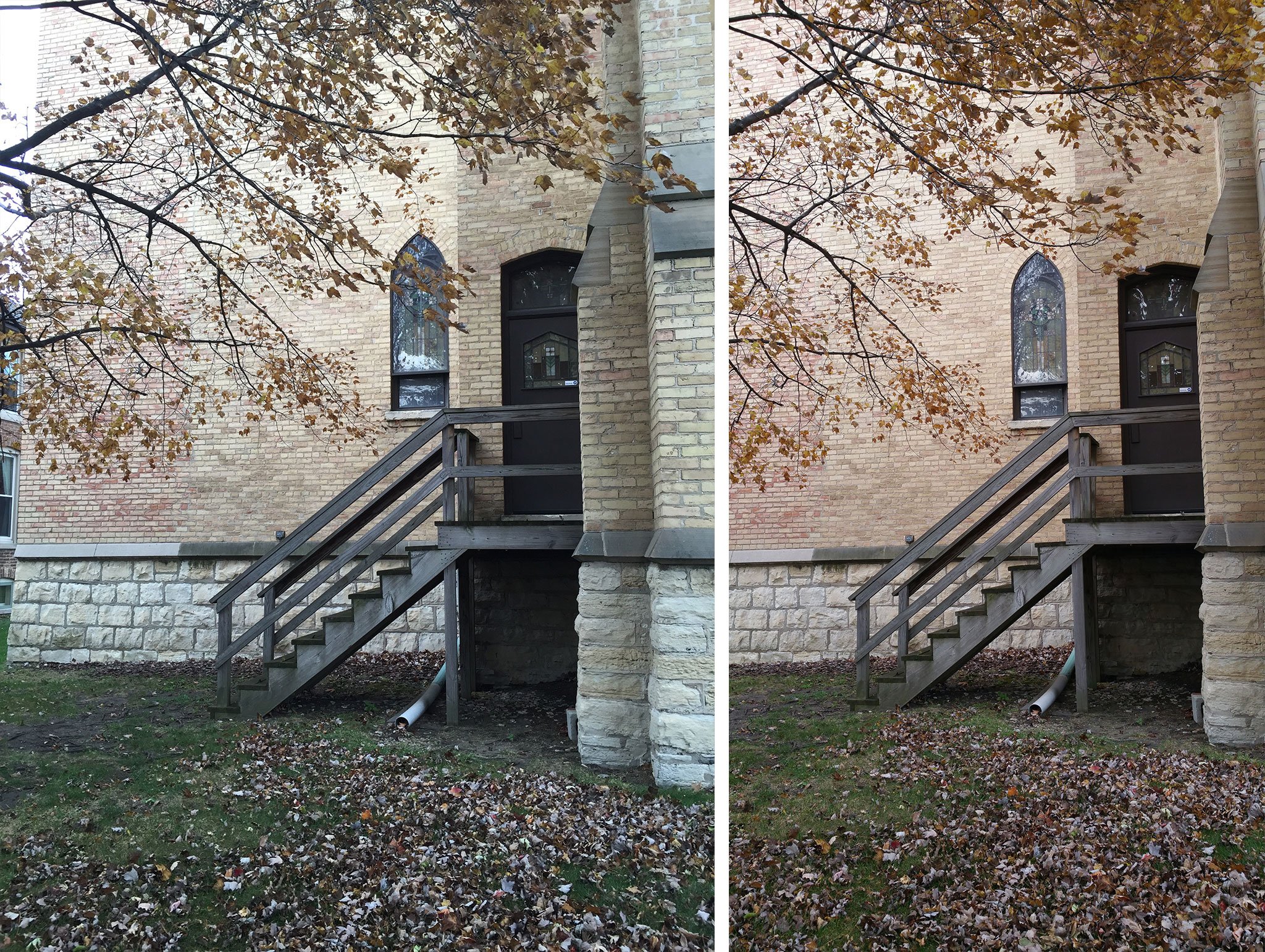

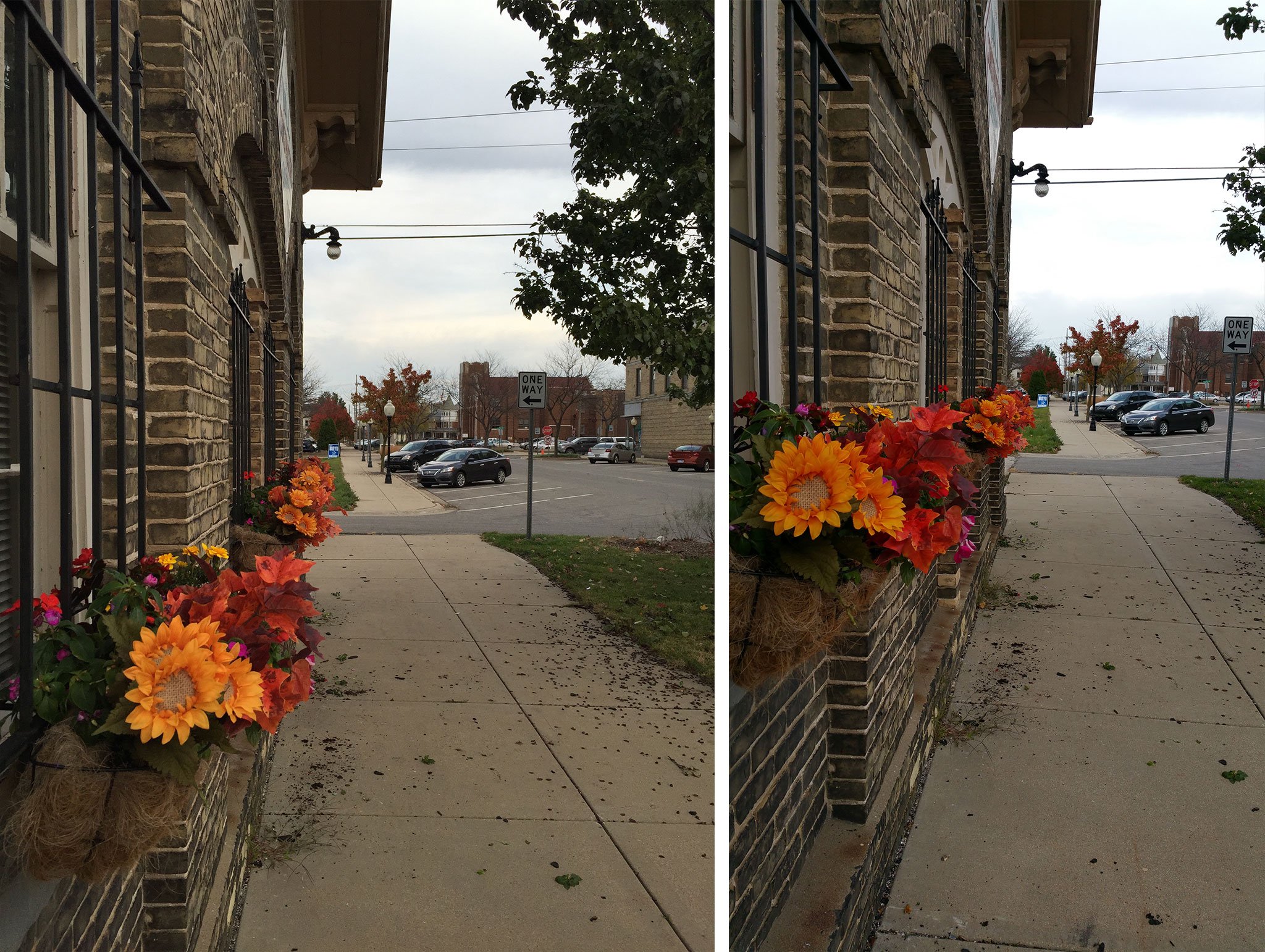

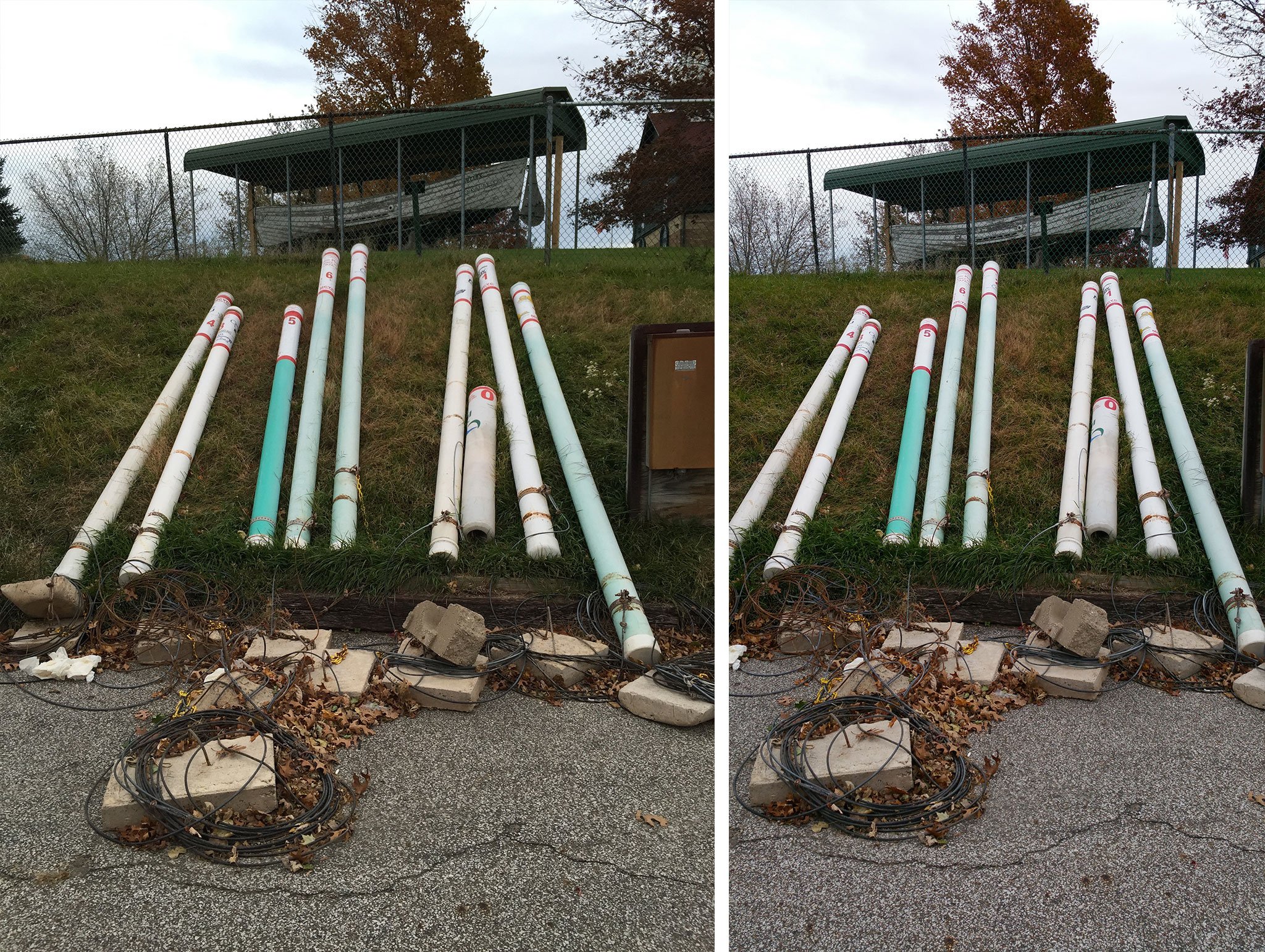

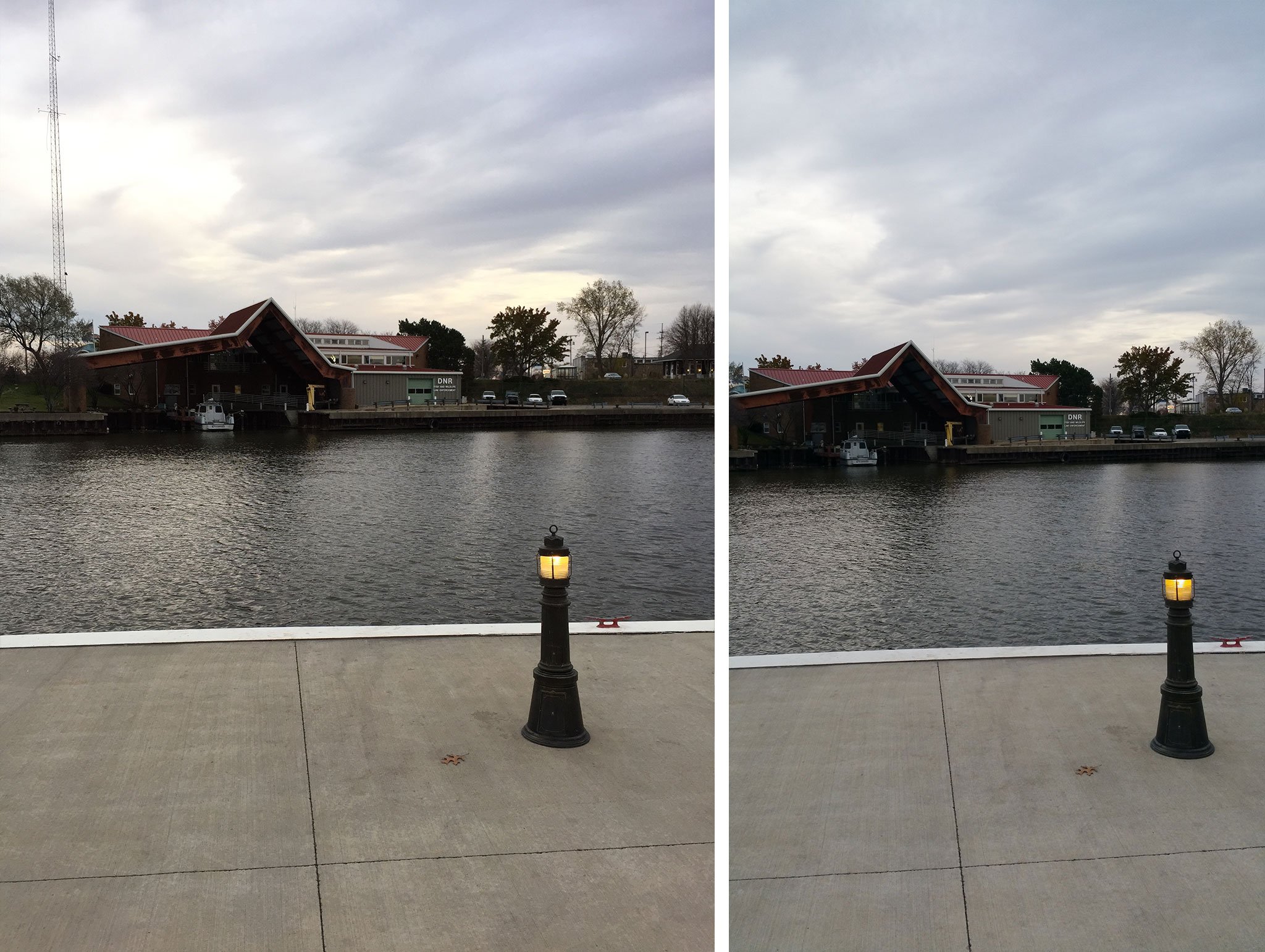
In the above images, I purposely disabled HDR on both phones. Other than that, I shot the way both phones come out of out of the box. The first thing I noticed is that the iPhone 6 Plus favors much warmer tones than the Galaxy Note 4. A great example of this is the 2nd and 3rd images. I personally prefer the Galaxy Note 4 in these samples simply because I prefer cooler tones. I know many folks, however, that prefer warmer tones and would most likely pick the photos from the iPhone 6 Plus. Other than that, both lenses are sharp and with everyday scenes where you have sufficient lighting, you shouldn't have a problem capturing stellar images with either.
They're both great but if you prefer warmer tones, you'll favor the iPhone 6 Plus, and cooler tones, the Galaxy Note 4.
Winner: Tie
EXIF data for red door image:
Master your iPhone in minutes
iMore offers spot-on advice and guidance from our team of experts, with decades of Apple device experience to lean on. Learn more with iMore!
| Header Cell - Column 0 | iPhone 6 Plus | Galaxy Note 4 |
|---|---|---|
| Shutter Speed | 1/146 | 1/120 |
| ISO | 32 | 50 |
| Aperture | 2.2 | 2.2 |
| Focal Length | 4.15mm | 4.8mm |
iPhone 6 Plus vs Galaxy Note 4: HDR photography
From left to right: iPhone 6 Plus, Galaxy Note 4:

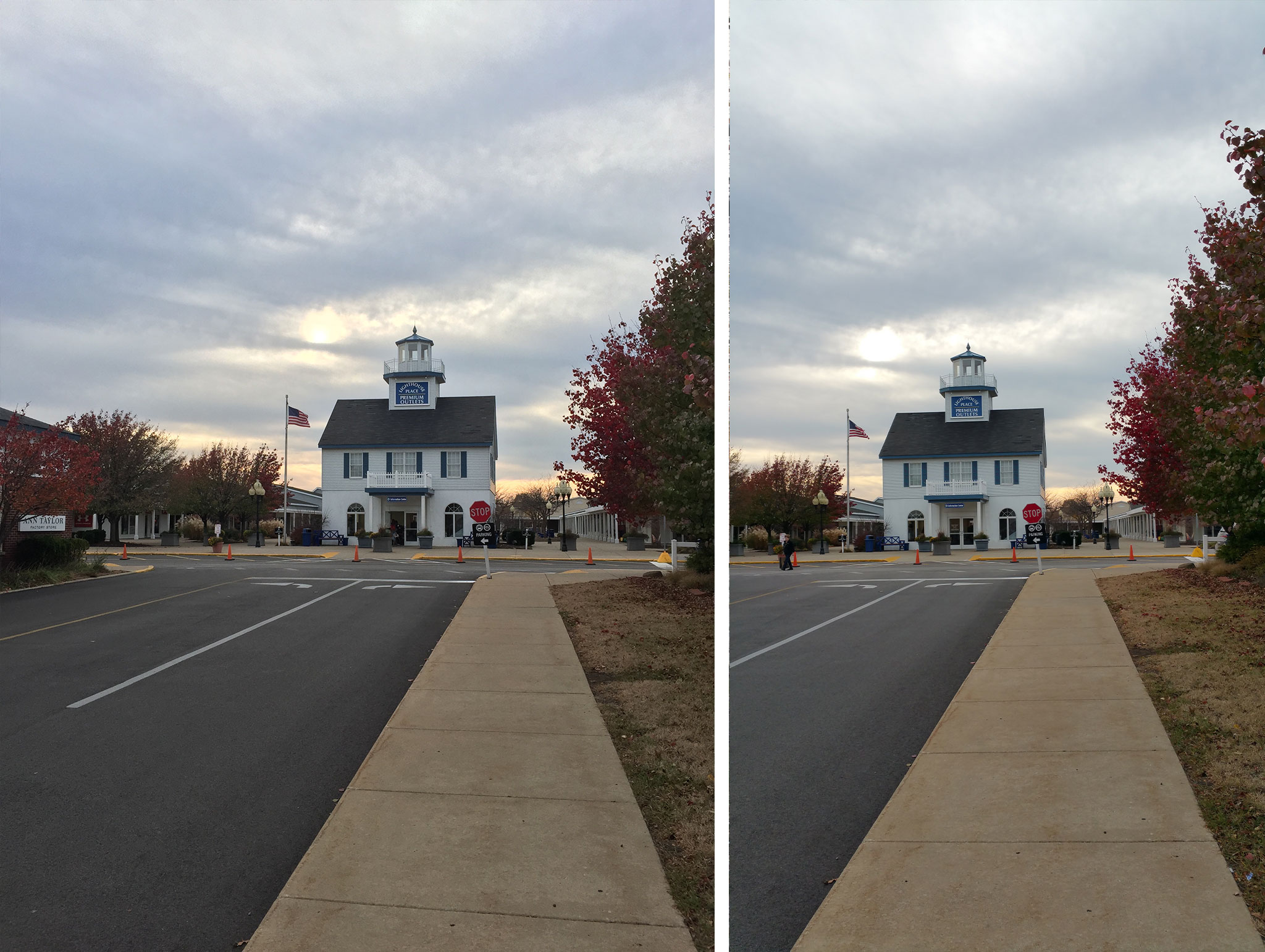
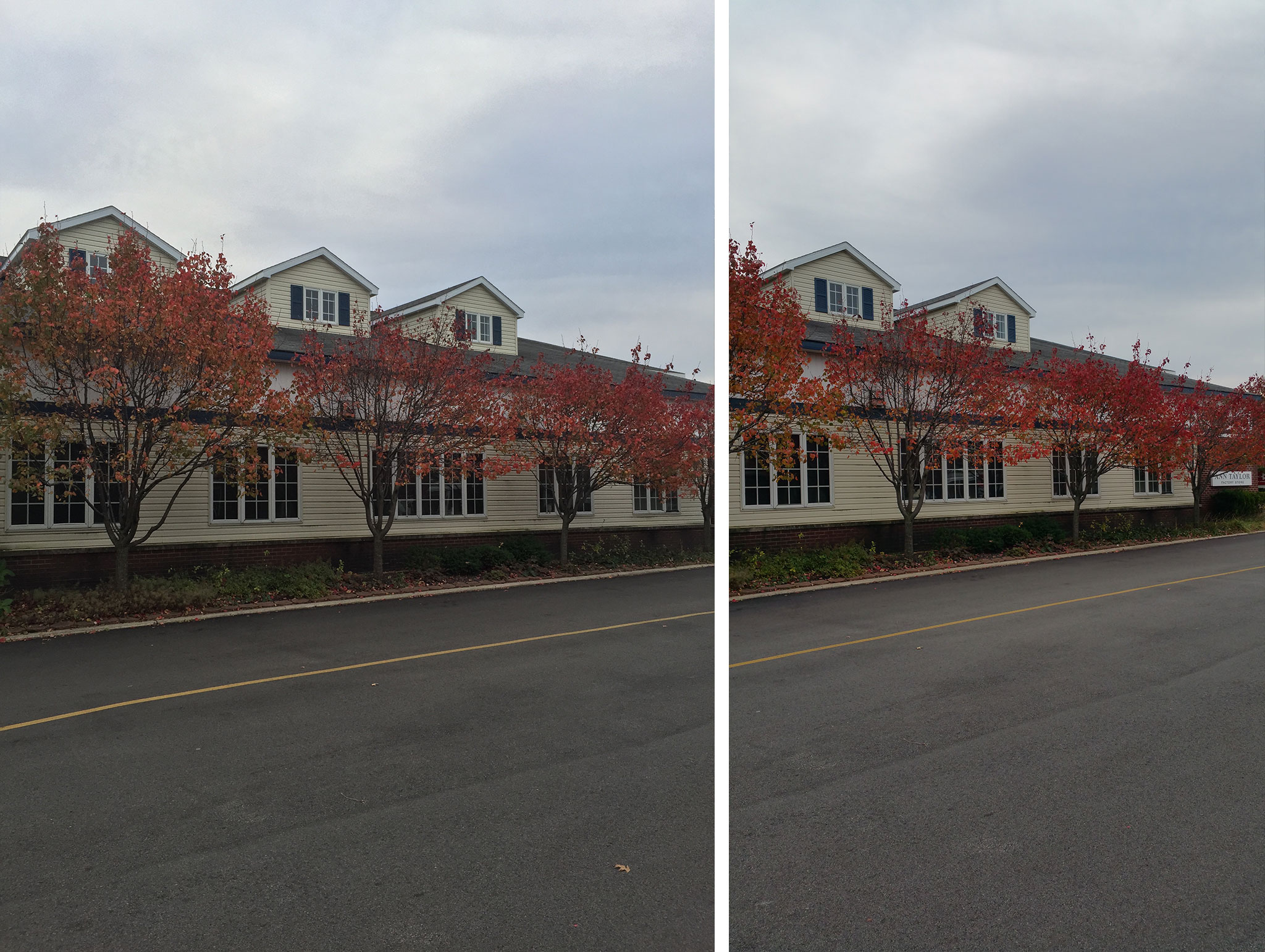

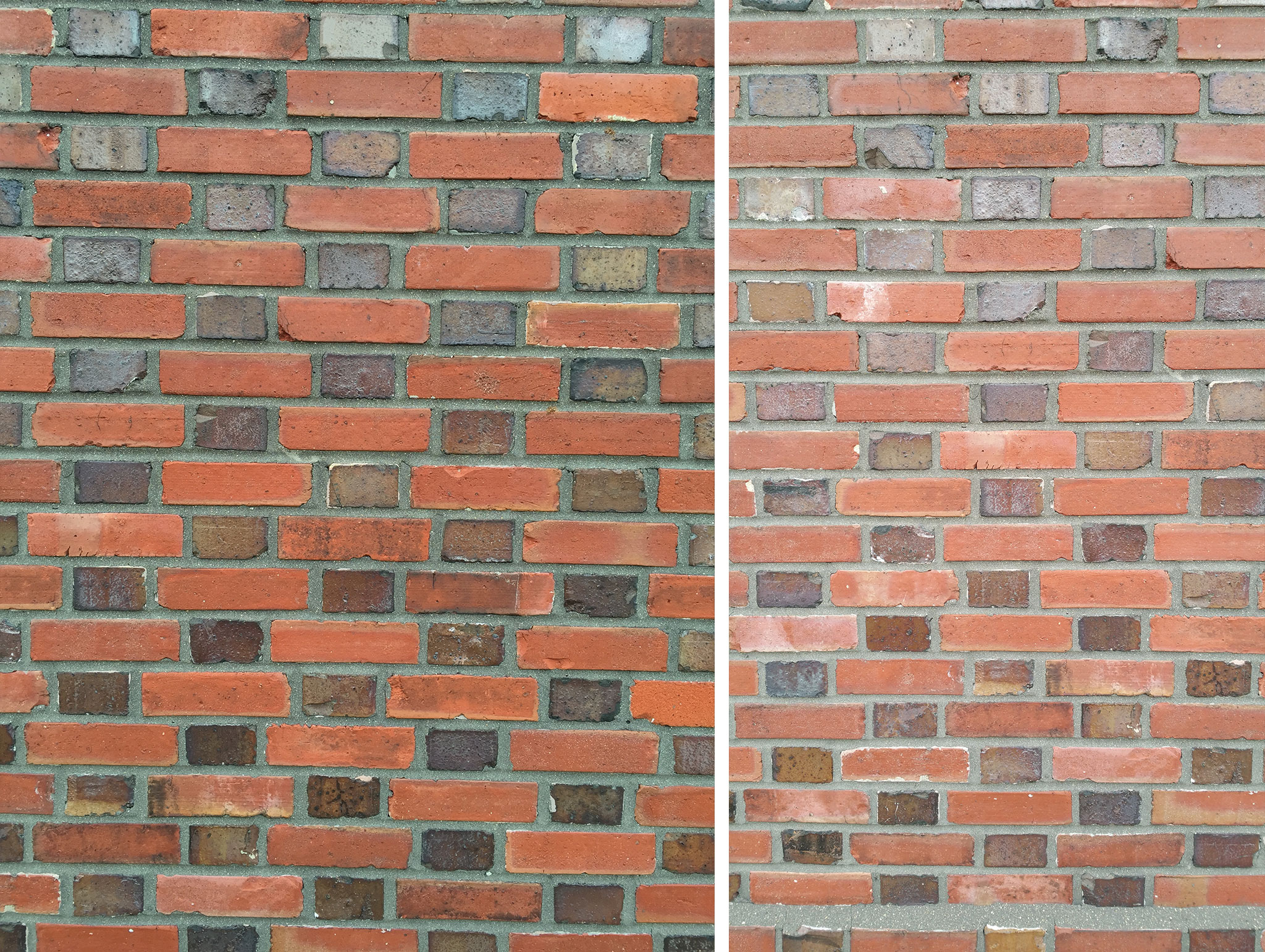
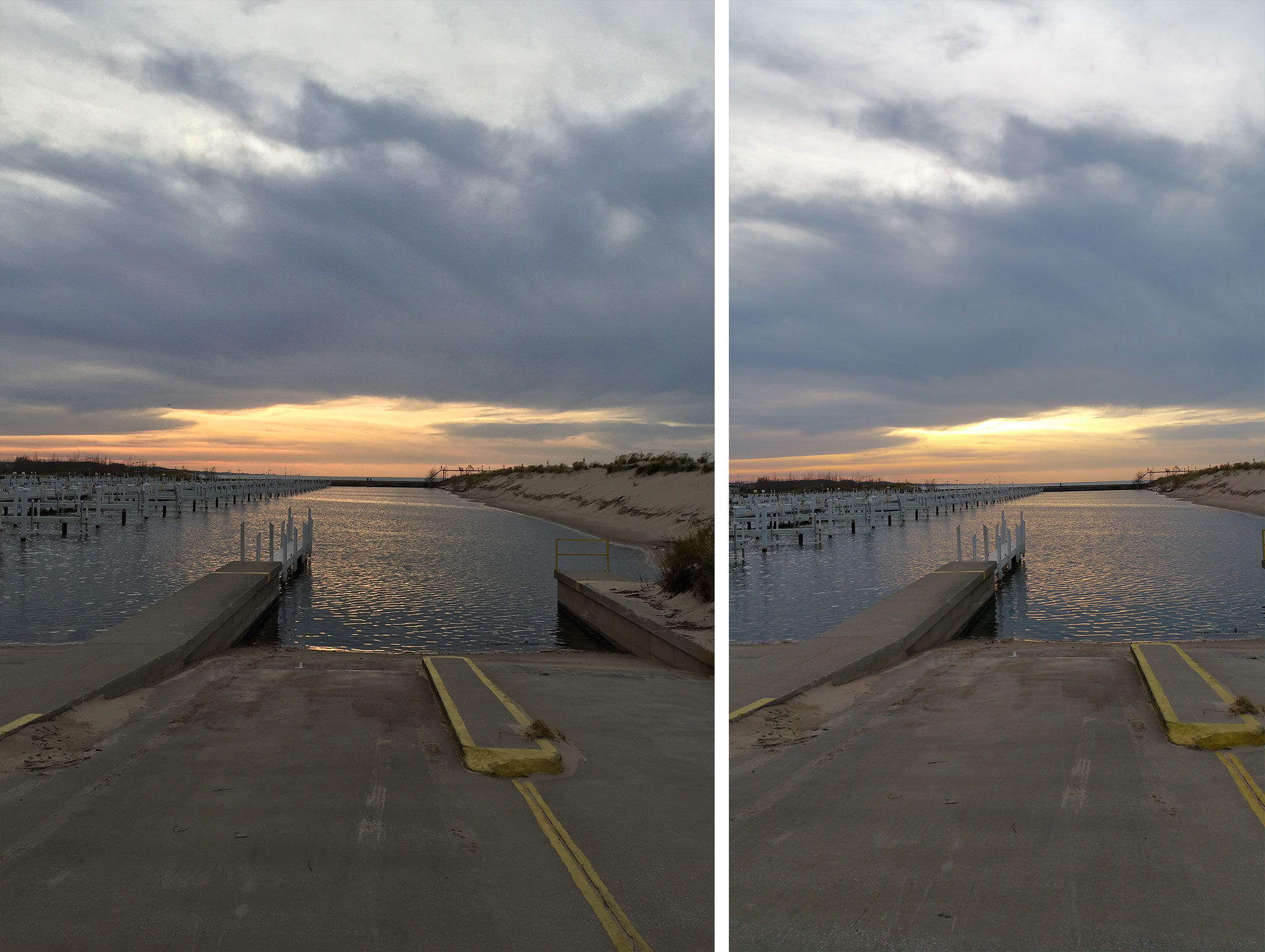
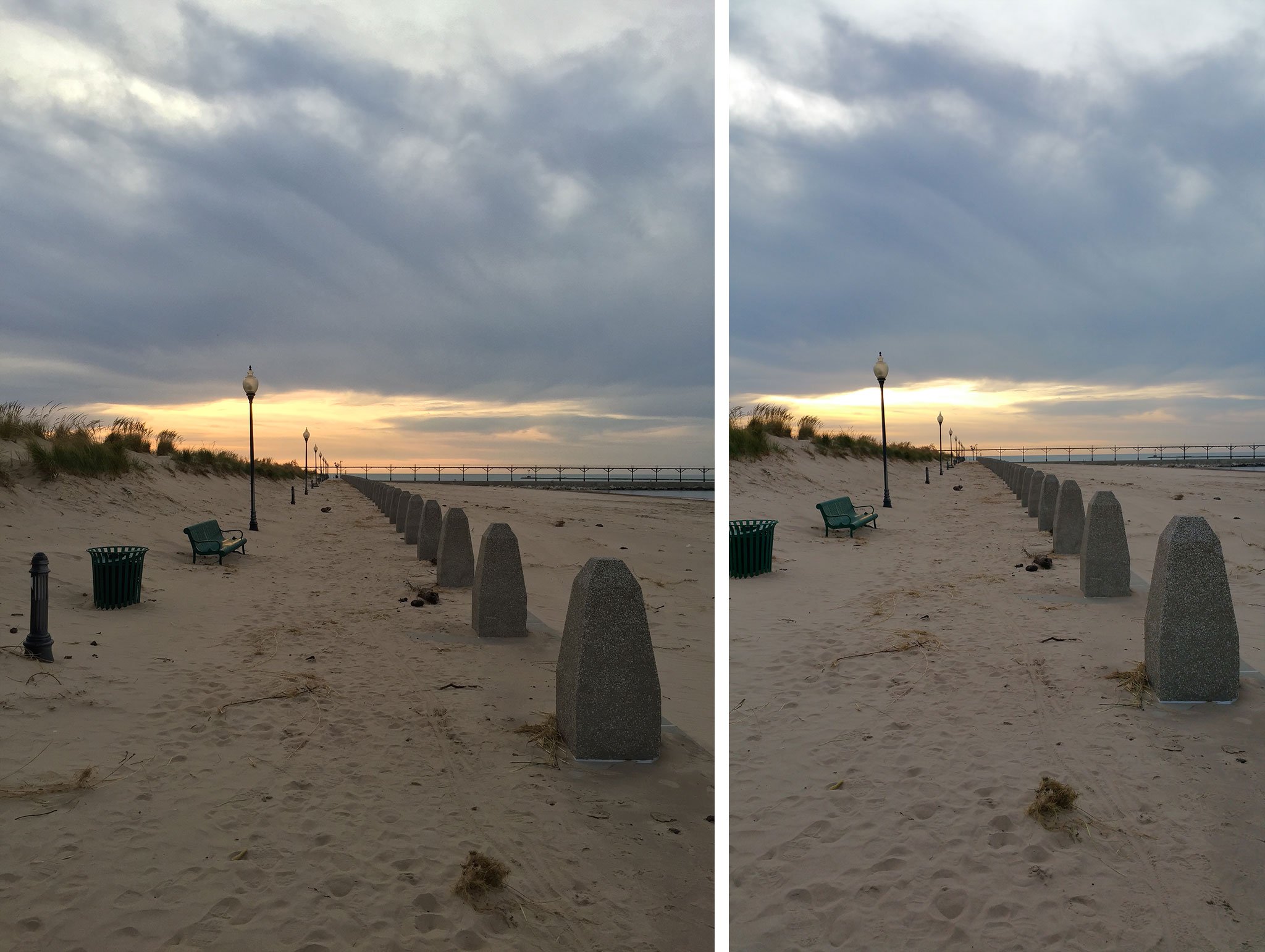
For HDR samples, I made sure HDR was enabled on both devices. Other than that, everything else was left alone. For most of the samples, I felt as if both the iPhone 6 Plus and the Note 4 ran neck and neck. However, there were a few instances that one out-performed the other. The photo of the bricks is the first example of this. For some reason the Note 4 washed out reds while the 6 Plus did a more accurate job of presenting what was in front of me. The red trees in photo 3 however, they look better in the sample off the Note 4. They just seem to "pop" more. I also noticed that sometimes the iPhone 6 Plus produced images that were slightly darker when HDR was enabled where the Note 4 didn't. The 4th image of the house is a good example of this. It's not a huge difference, but it's noticeable.
While both cameras perform well, the Note 4 seems to be slightly more consistent and balanced, with only a few exceptions.
Winner: Galaxy Note 4
EXIF data for image of bricks:
| Header Cell - Column 0 | iPhone 6 Plus | Galaxy Note 4 |
|---|---|---|
| Shutter Speed | 1/60 | 1/30 |
| ISO | 32 | 40 |
| Aperture | 2.2 | 2.2 |
| Focal Length | 4.15mm | 4.8mm |
iPhone 6 Plus vs Galaxy Note 4: Macro photography and depth of field
From left to right: iPhone 6 Plus, Galaxy Note 4:
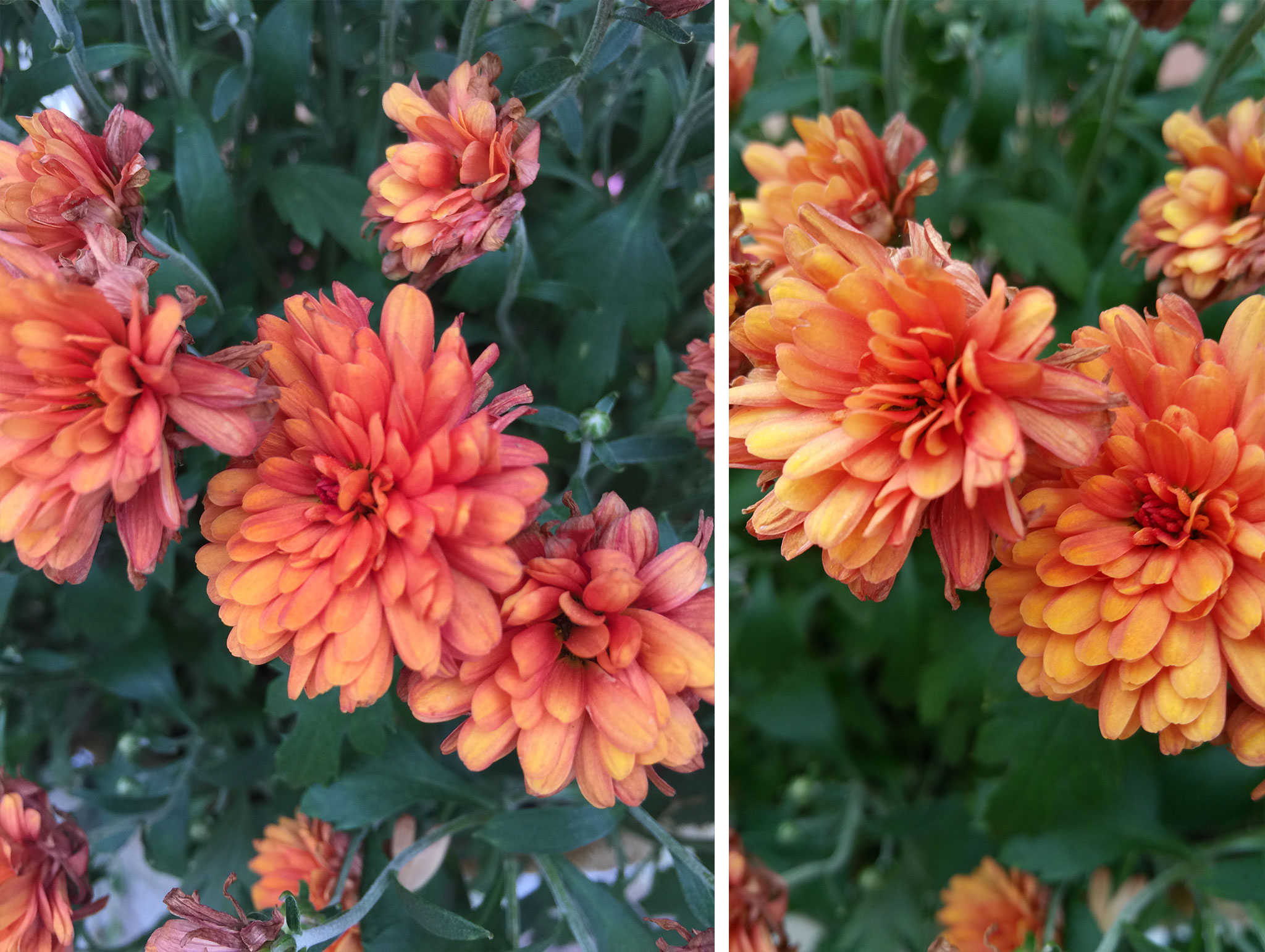
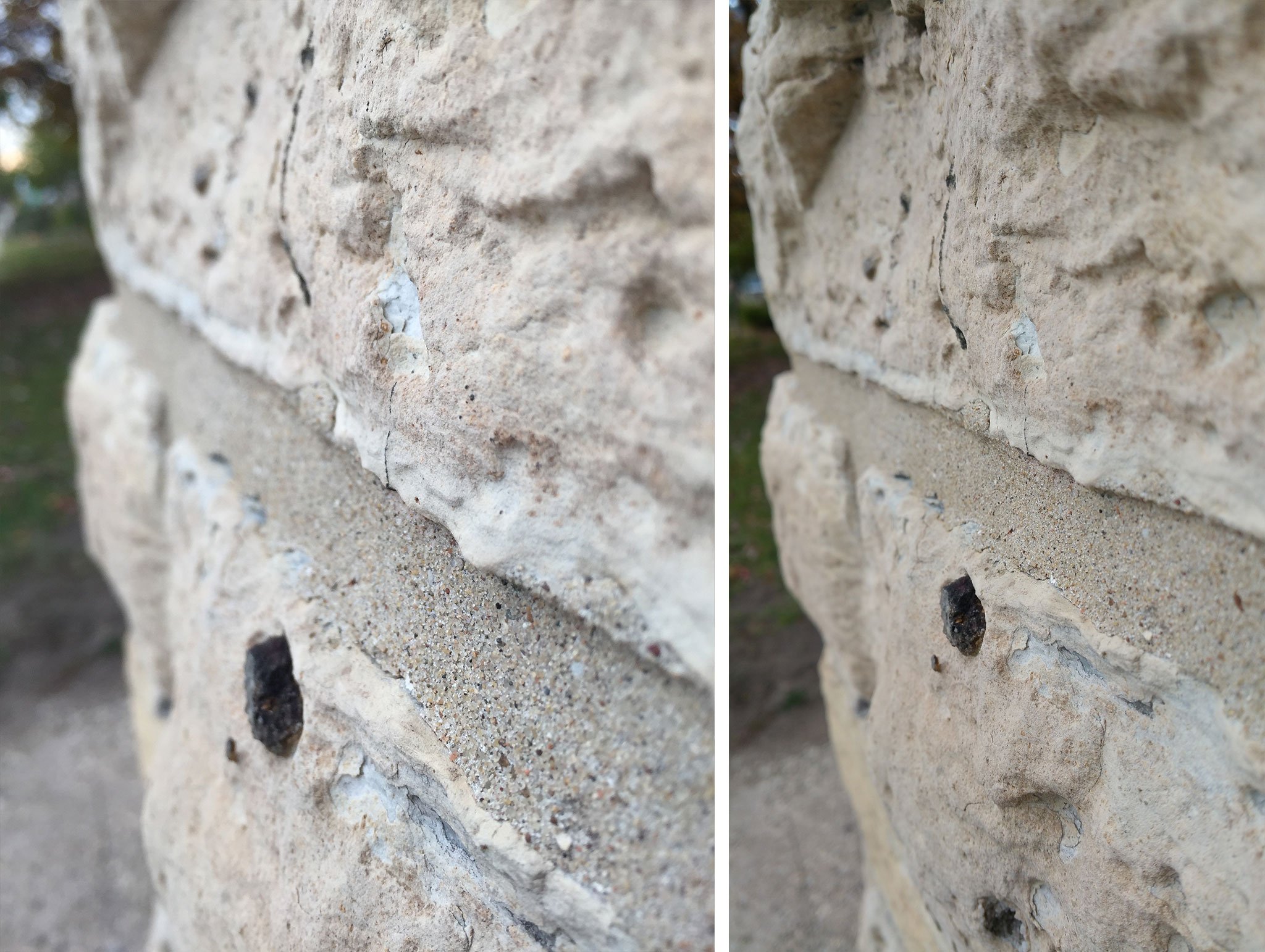
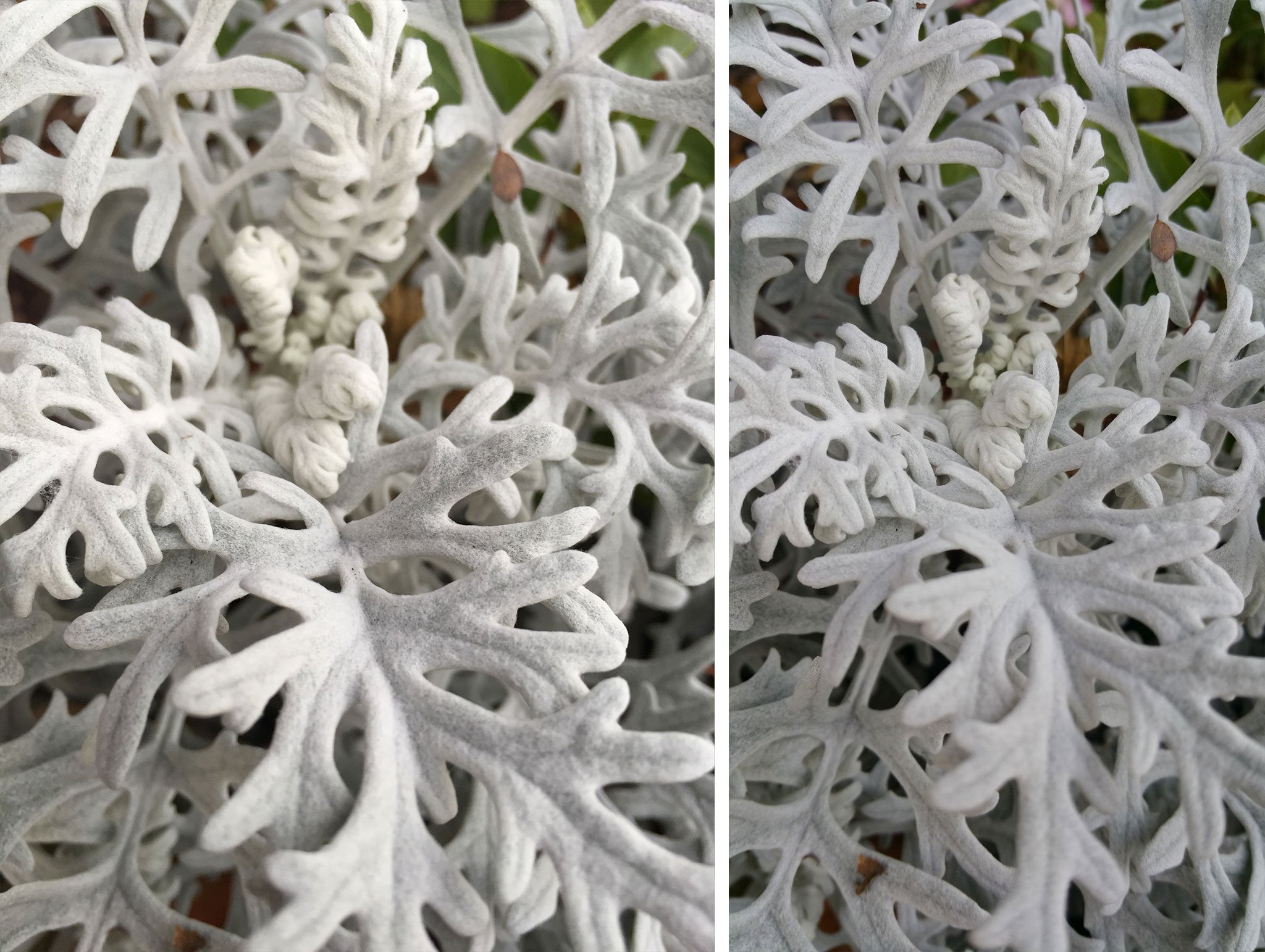
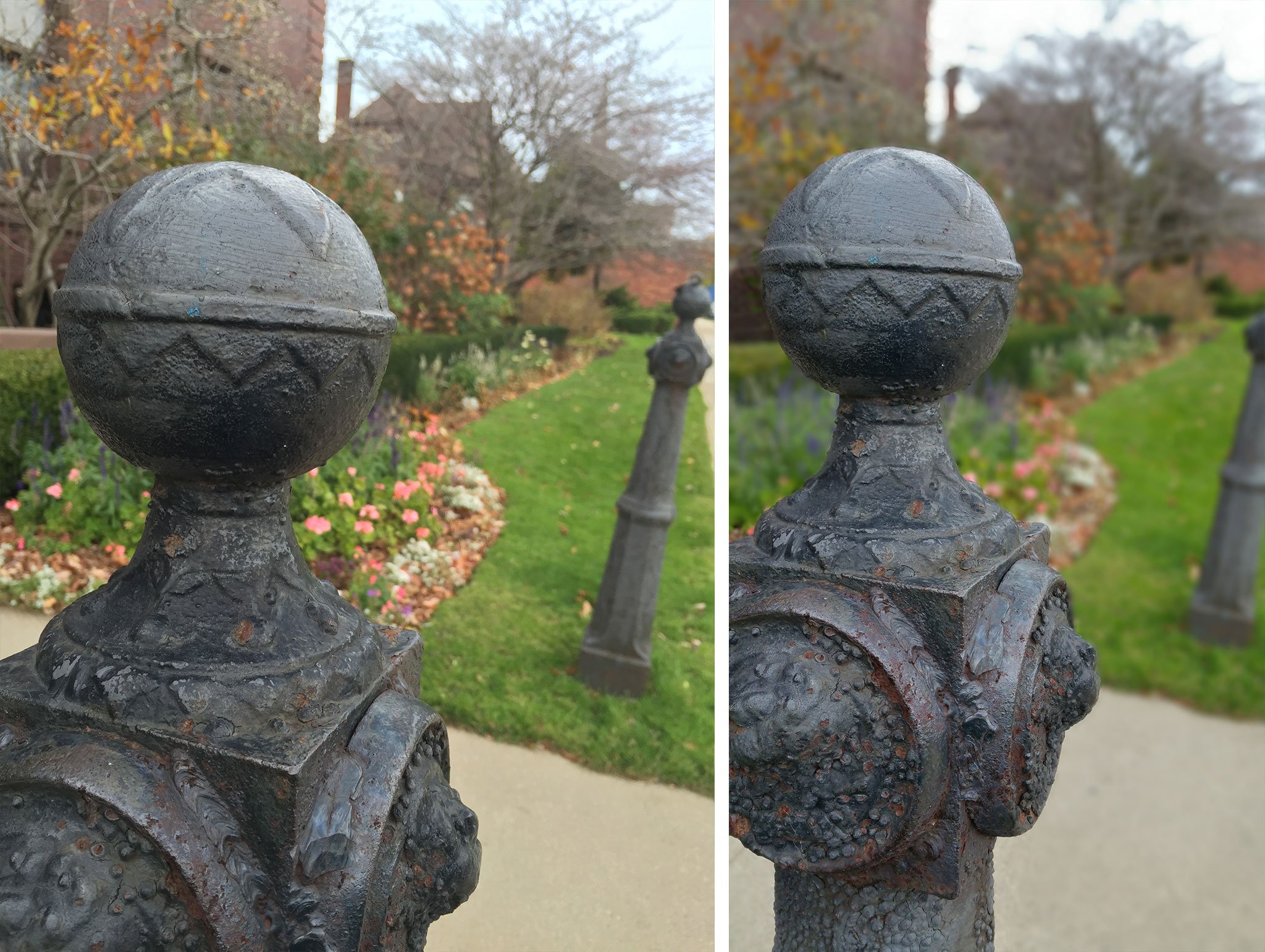
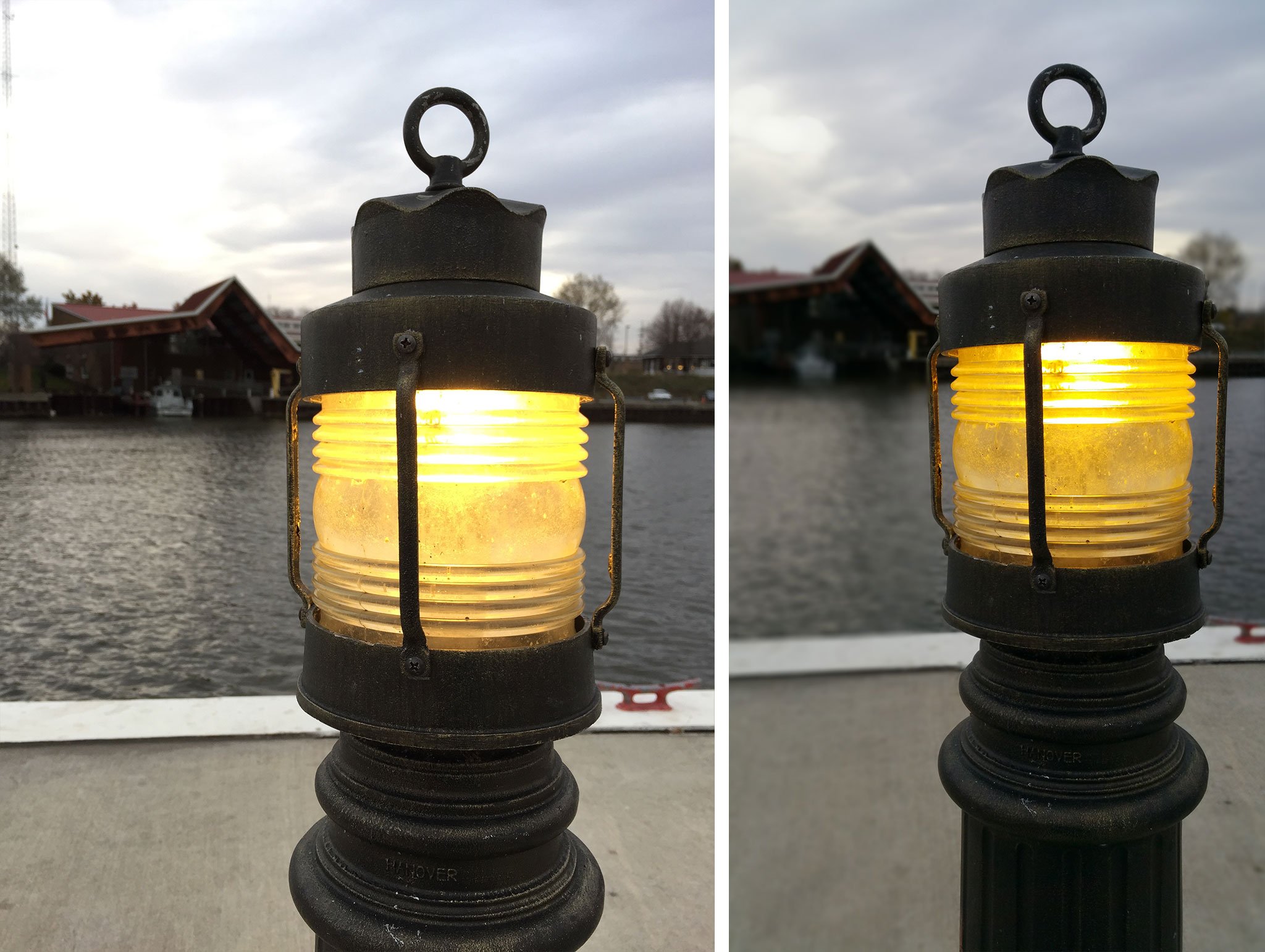
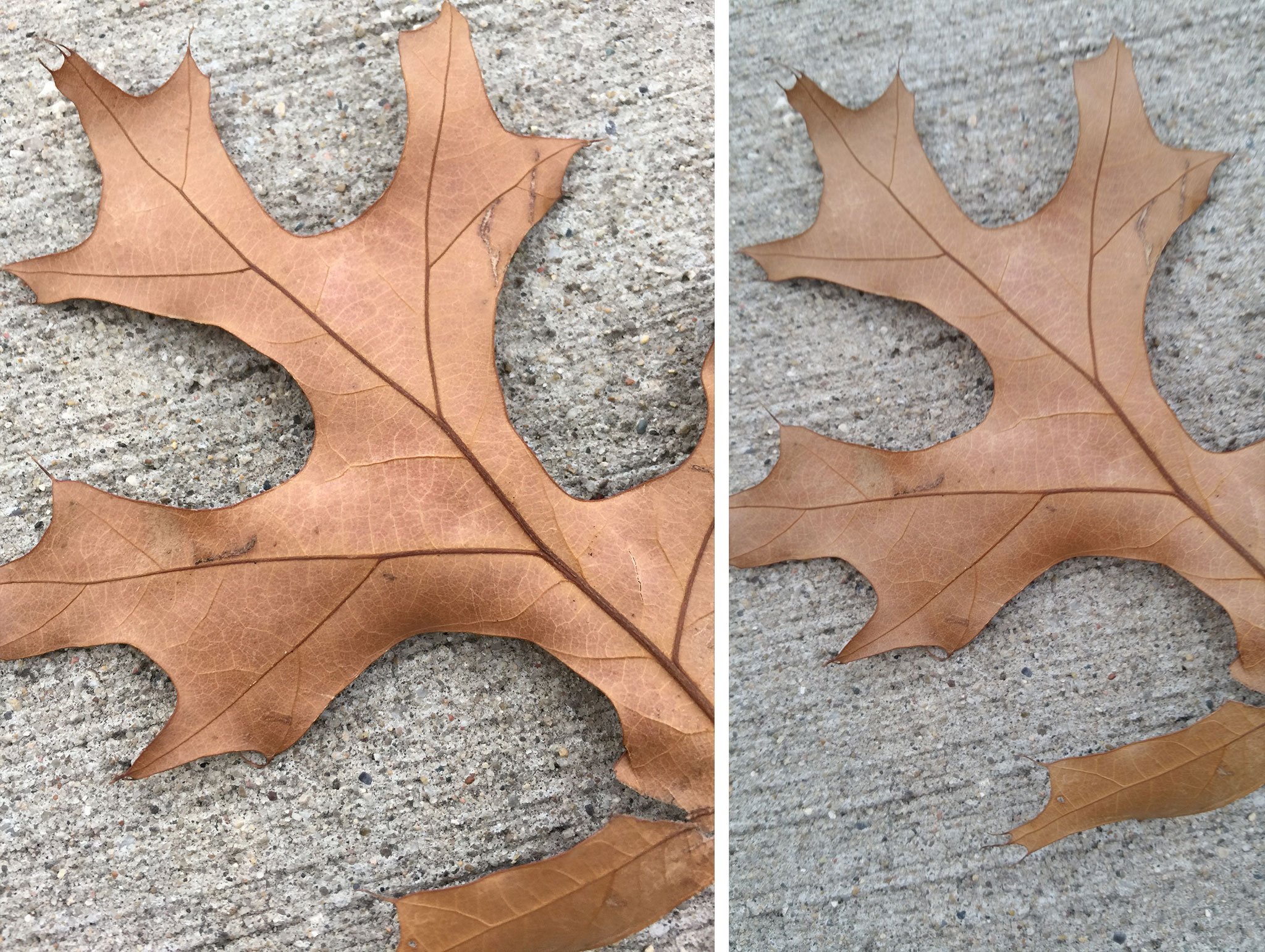
For macro and depth of field photos, I purposely tapped on the same focus point with each camera. For close-up macro shots, I also attempted to get as close as I could to objects and only stopped when I had trouble focusing. Where macro is concerned, the iPhone 6 Plus seems to be able to get in tighter than the Note 4 without losing sharpness. This is the most apparent in the last sample photo of the leaf.
However, when it comes to depth of field and achieving a "bokeh" effect, the Note 4 has a secret punch in the form of a selective focus mode. Since it's easy to access and super simple to use, it's fair game. Just activate it in settings and then tap where you'd like the focus to be. Some behind the scenes software magic takes multiple photos with different focus points. This way you can even change the focus later if you'd like between near, far, and pan. The feature not only works, it works awesomely well.
When it comes to closeup macro shots, the iPhone 6 Plus wins. But where depth of field is concerned, the Note 4 has some awesome trickery up its sleeve.
Winner: iPhone 6 Plus for closeups, Galaxy Note 4 for depth of field shots
EXIF data for photo of leaf:
| Header Cell - Column 0 | iPhone 6 Plus | Galaxy Note 4 |
|---|---|---|
| Shutter Speed | 1/30 | 1/30 |
| ISO | 32 | 64 |
| Aperture | 2.2 | 2.2 |
| Focal Length | 4.15mm | 4.8mm |
iPhone 6 Plus vs Galaxy Note 4: Low light photography
From left to right: iPhone 6 Plus, Galaxy Note 4:
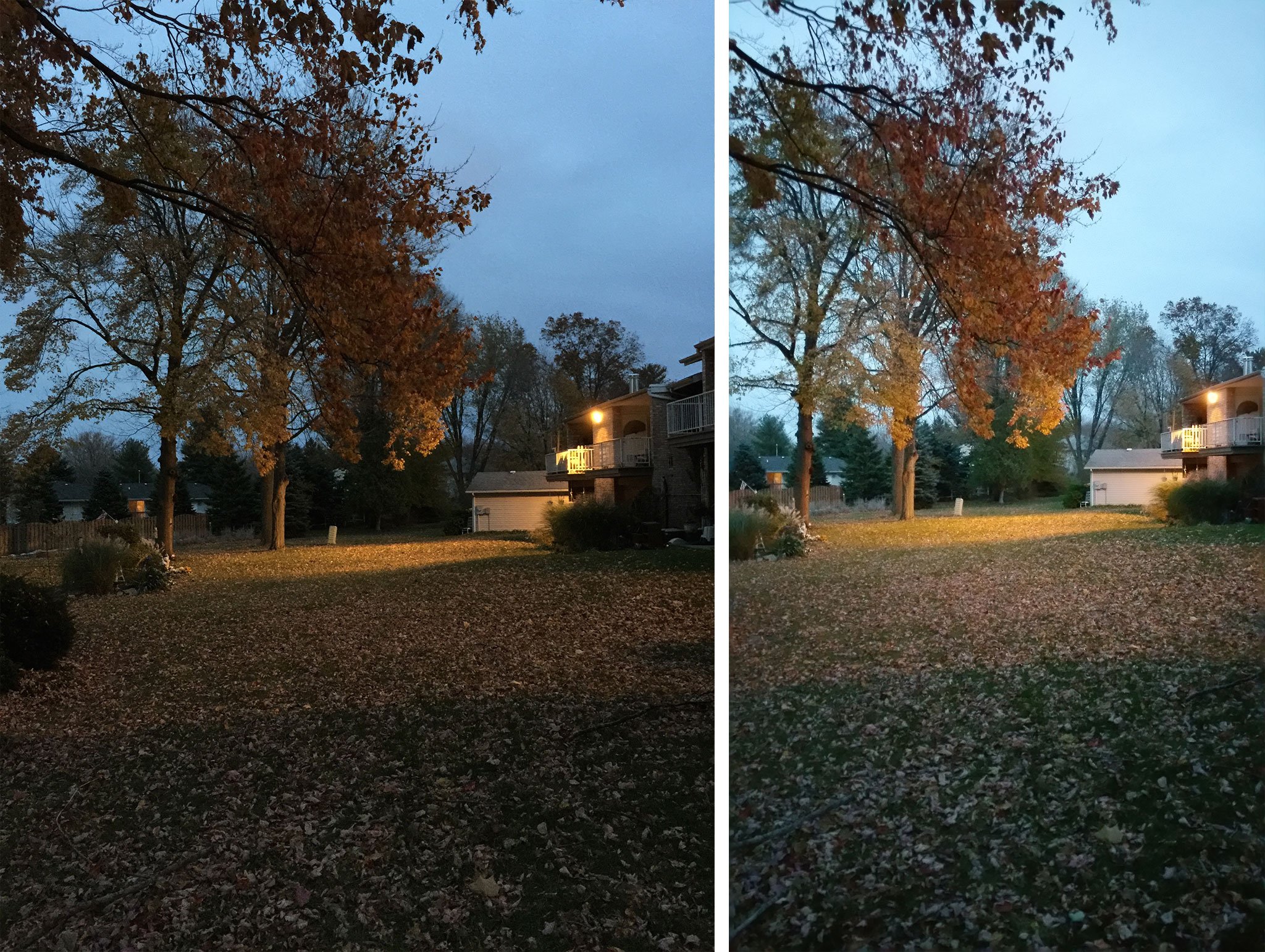
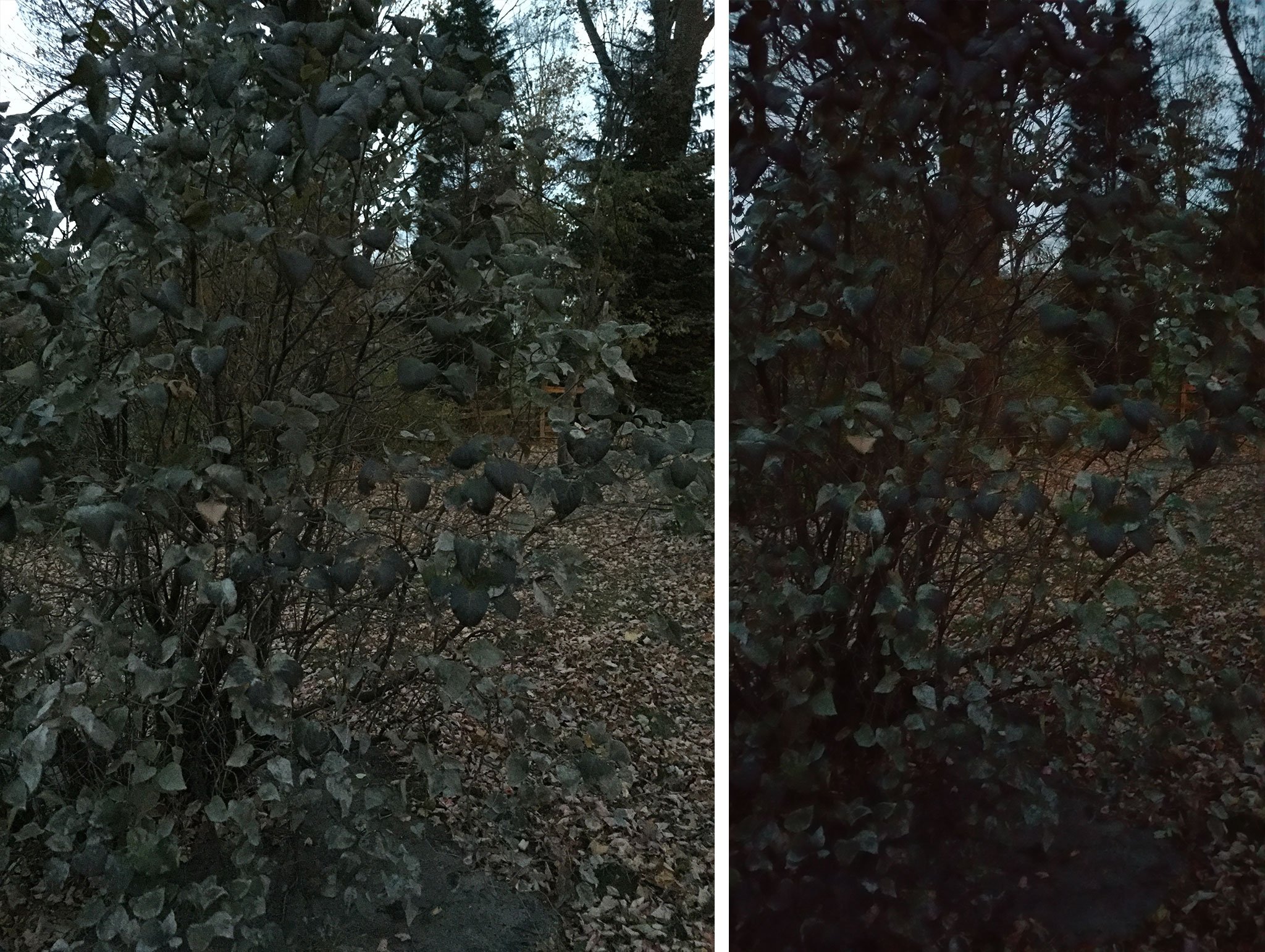
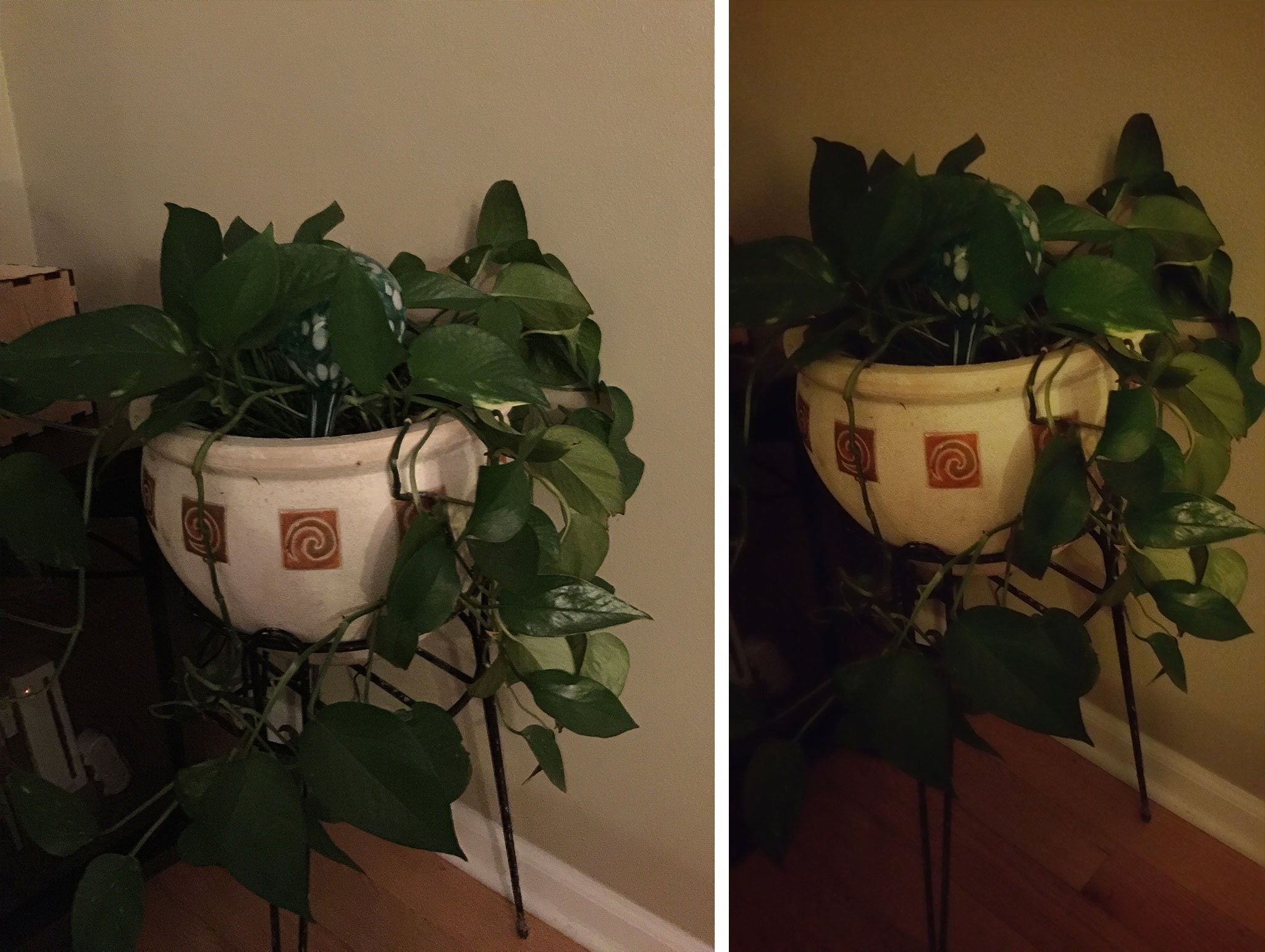
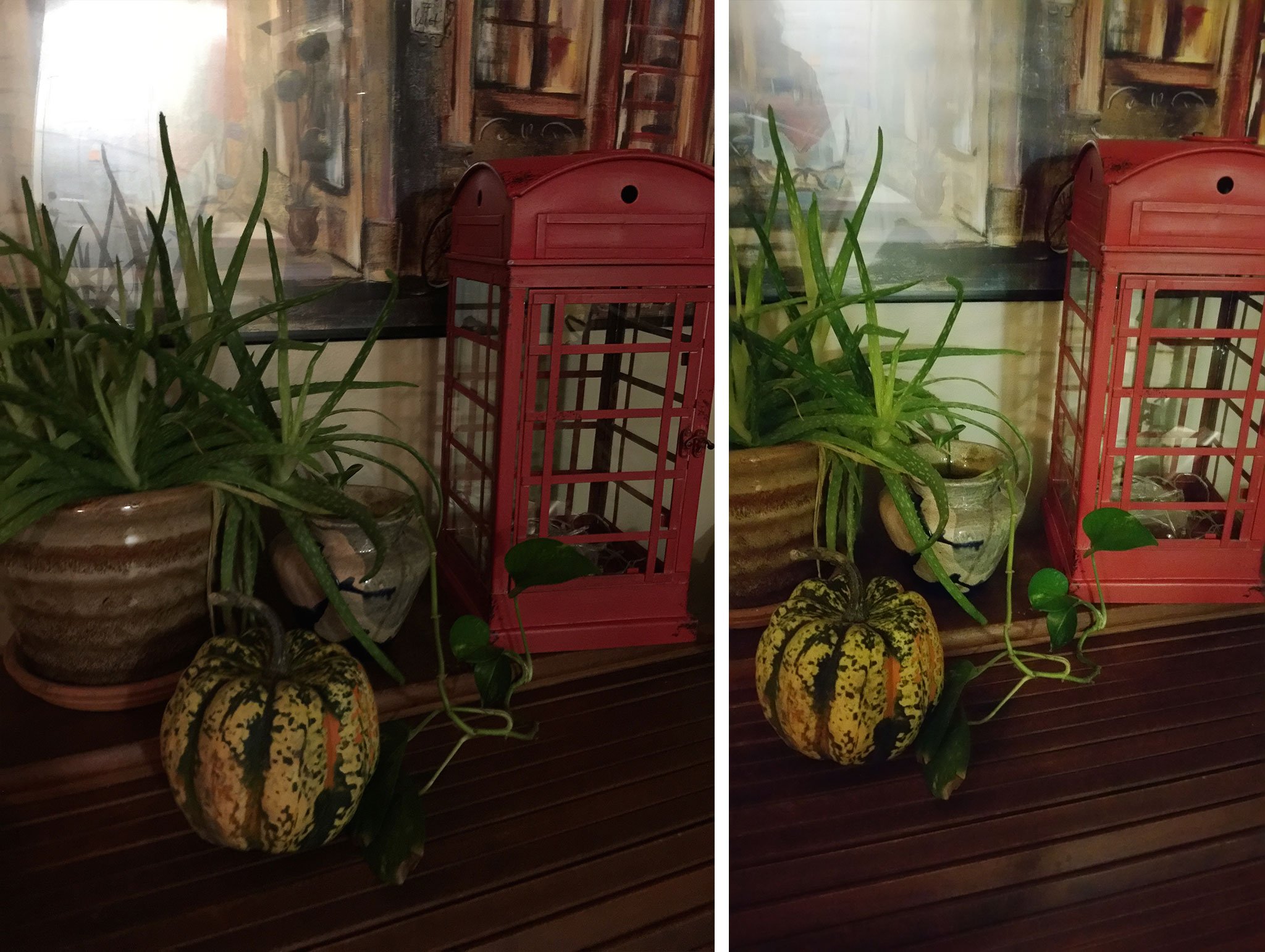
Low light photography was very intriguing to me in this comparison. In the first sample shot, the Note 4 does a noticeably better job balancing brightness and noise. The iPhone 6 Plus shot is not only darker, it still has more noise, which is odd to me. In the second shot, the iPhone 6 Plus did a better job balancing the scene while the Note 4 produced the darker image. Moving indoors, the iPhone 6 Plus did a decent job balancing low indoor lighting without casting yellow hues, which I see often with many smartphone cameras. The shot with the phone box is brighter in the Note 4 sample but the colors are washed out.
Considering the wide range of differences, it's really hard to declare a single winner so I'm going to judge based on my experience as a whole. Indoor low light shots are consistently better with the iPhone 6 Plus. However, the Galaxy Note 4 seems to perform better in natural and outdoor low lighting scenarios.
Winner: Tie, iPhone 6 Plus is better indoors while the Note 4 does better outdoors
EXIF data for first photo in this set, outdoor scene:
I'm not sure why, but none of my low light samples on the Note 4 show shutter speed or ISO. I've tried to pull data in Lightroom, iPhoto, and Photoshop and all show blanks for both values in every low light sample I took with the Note 4.
| Header Cell - Column 0 | iPhone 6 Plus | Galaxy Note 4 |
|---|---|---|
| Shutter Speed | 1/4 | ? |
| ISO | 125 | ? |
| Aperture | 2.2 | 2.2 |
| Focal Length | 4.15mm | 4.8mm |
iPhone 6 Plus vs Galaxy Note 4: Flash photography
From left to right: iPhone 6 Plus, Galaxy Note 4:
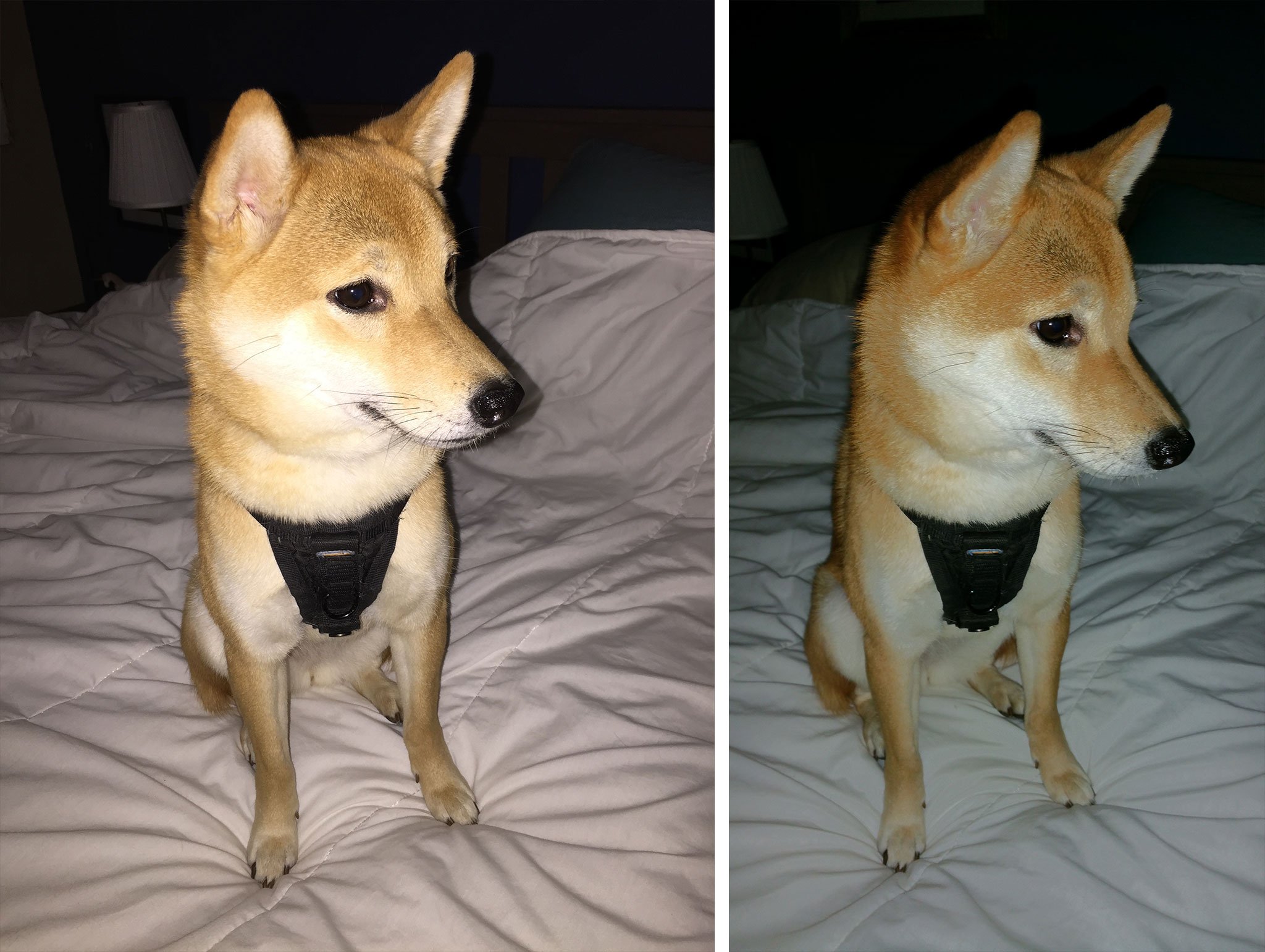
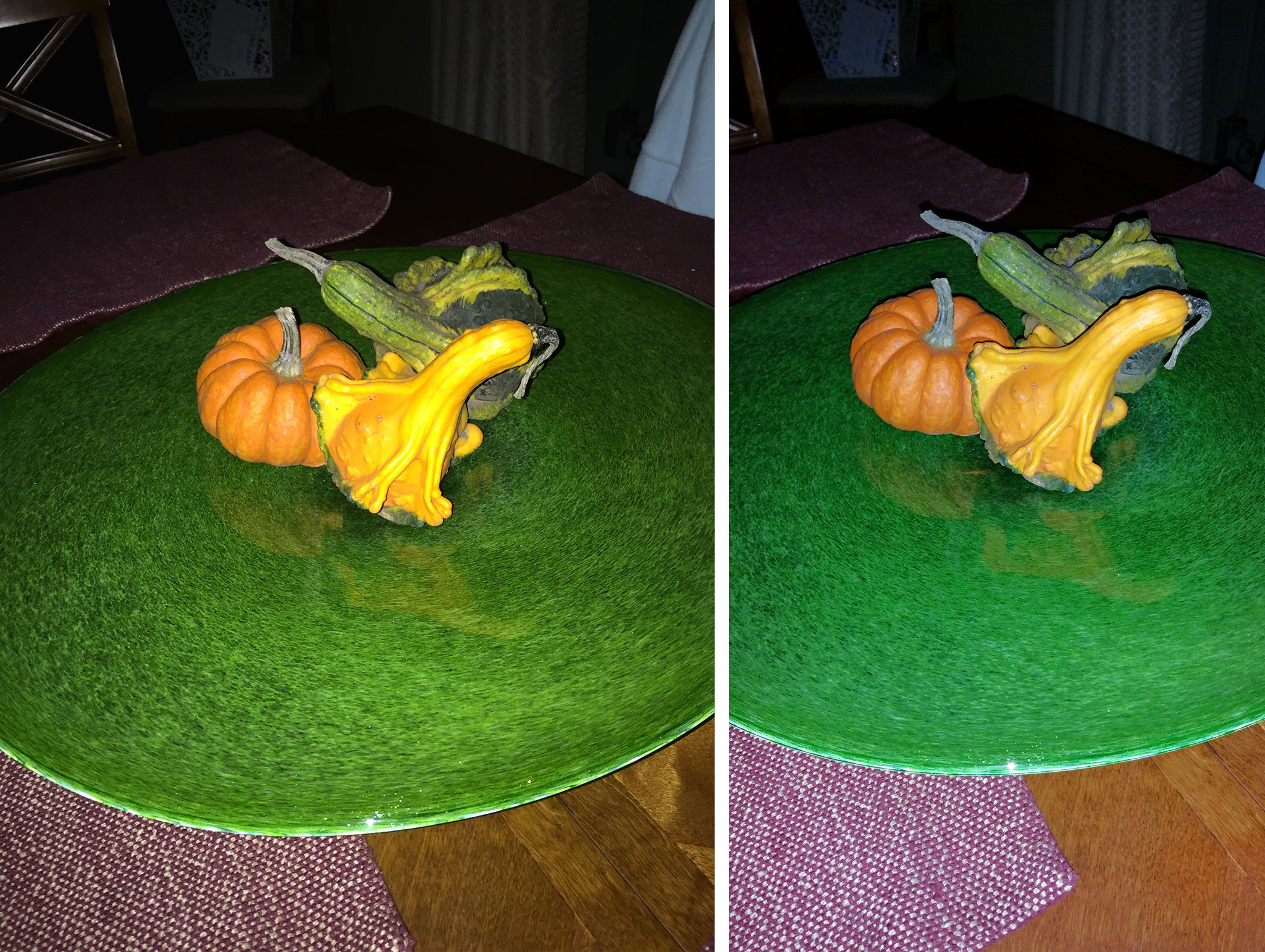

Flash photography isn't bad in either camera but the difference in tones will matter to some folks. Since the iPhone 6 Plus has what Apple calls a True Tone flash, you can expect warmer images. This is obvious in pretty much every sample. Again, I prefer cooler tones in most situations so to my eyes, I actually prefer the Note 4 samples. But again, it's going to come down to preference. The only other point worth making is that the iPhone 6 Plus flash seems to brighten the entire scene a little better while the Note 4 flash targets the subject. Again, probably a matter of preference and won't be a huge deal for most folks.
Winner: Tie
EXIF data from first photo in this set:
| Header Cell - Column 0 | iPhone 6 Plus | Galaxy Note 4 |
|---|---|---|
| Shutter Speed | 1/16 | 1/30 |
| ISO | 32 | 50 |
| Aperture | 2.2 | 2.2 |
| Focal Length | 4.15mm | 4.8mm |
iPhone 6 Plus vs Galaxy Note 4: Zoom
From left to right: iPhone 6 Plus, Galaxy Note 4:



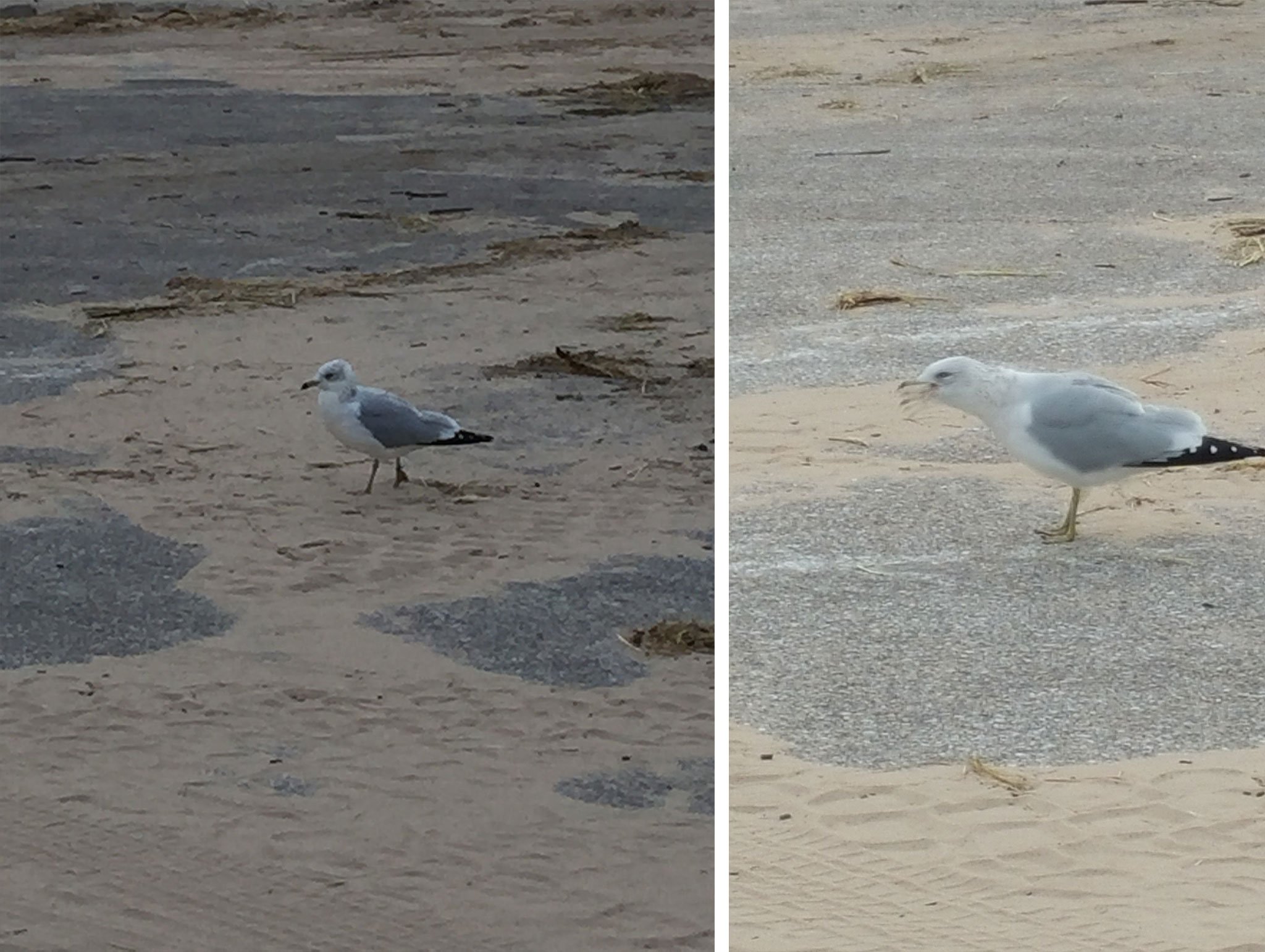
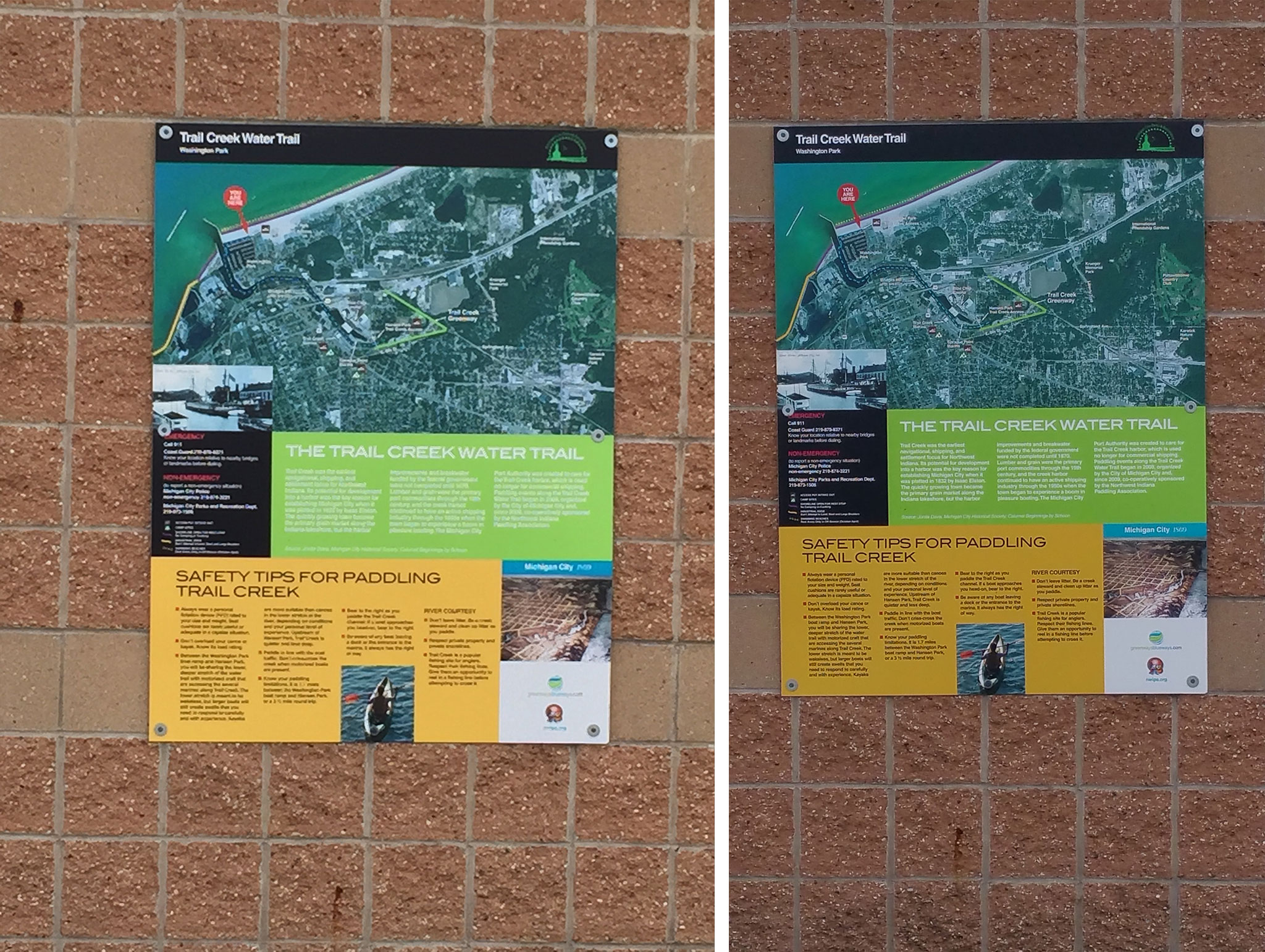
I've never been a huge fan of digital zoom and in most cases, I'd rather take a photo and crop later instead of using zoom. However, I was surprisingly pleased with the digital zoom in the Galaxy Note 4. Even at 8x zoom, the images aren't nearly as grainy as I'd expect and in most cases, are actually usable. In each image, I zoomed in to where the image was framed in the same way. If the iPhone 6 Plus zoom reached its maximum zoom and the Note 4 hadn't, I kept zooming on the Note 4. And surprisingly, the Note 4 did a noticeably better job in every instance. Yay for digital zoom that's actually pretty stellar! Hey Apple, make zoom better already!
Winner: Galaxy Note 4
EXIF data from seagull photo:
Zoom seems to be another instance where the Note 4 doesn't allow me to pull shutter speed and ISO. Any insight is welcome as to why this is the case.
| Header Cell - Column 0 | iPhone 6 Plus | Galaxy Note 4 |
|---|---|---|
| Shutter Speed | 1/514 | ? |
| ISO | 32 | ? |
| Aperture | 2.2 | 2.2 |
| Focal Length | 4.15mm | 4.8mm |
iPhone 6 Plus vs Galaxy Note 4: Selfies!
From left to right: iPhone 6 Plus, Galaxy Note 4:

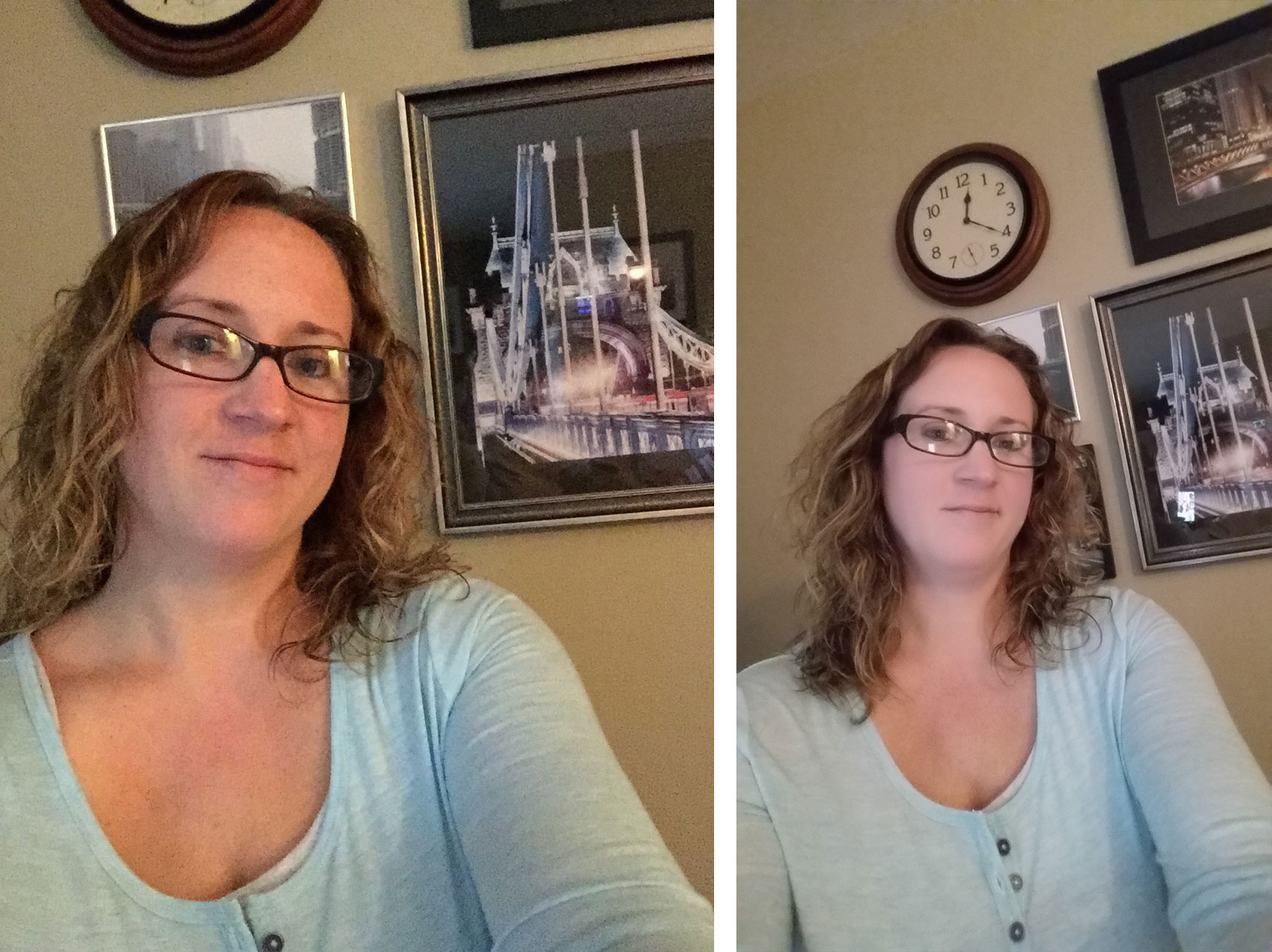
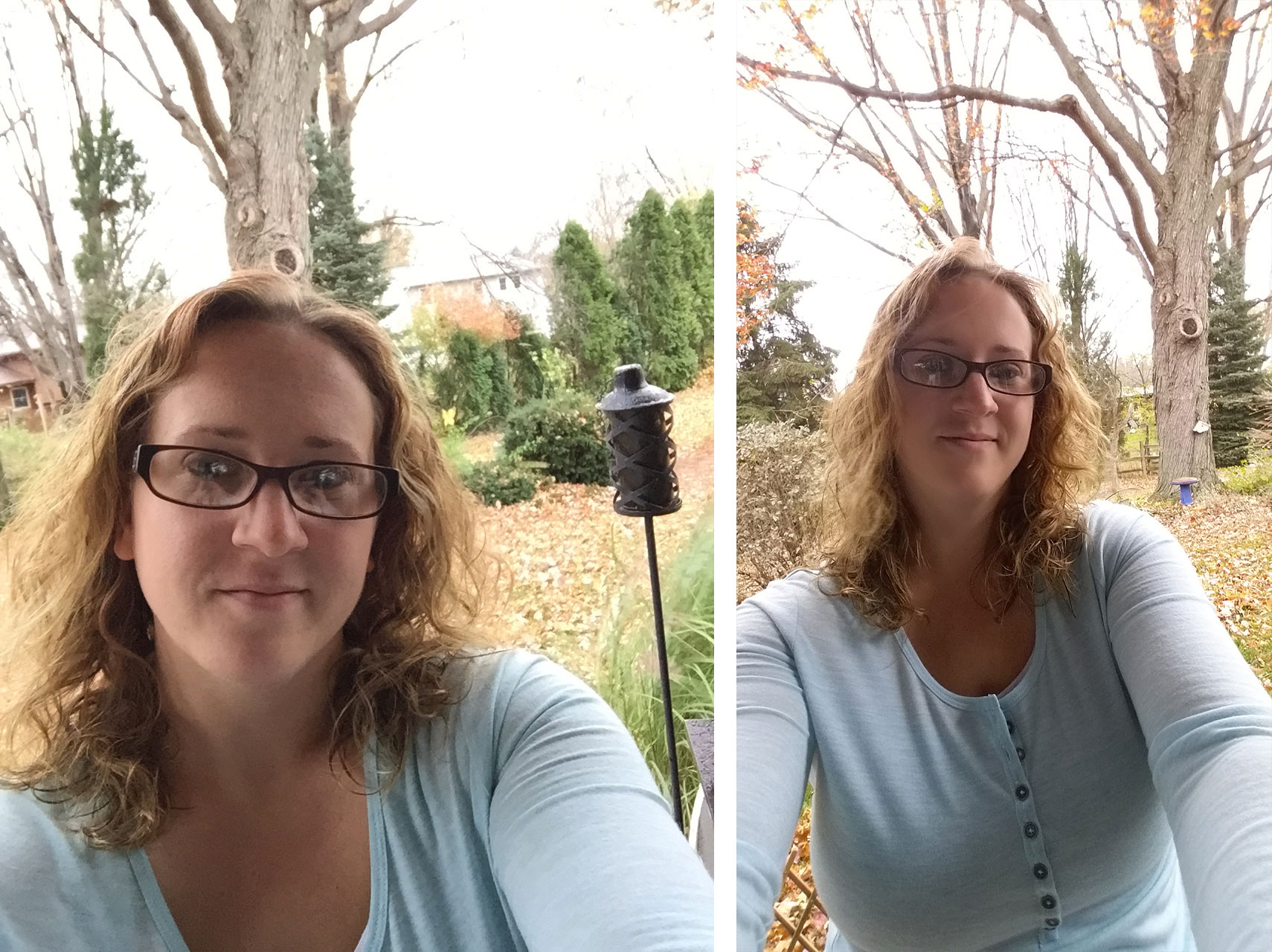
The Galaxy Note 4 has a better front facing camera than the iPhone 6 Plus in terms of both megapixels and aperture. And for the most part, it shows. Not only is there less grain, you can fit more into a frame. My only complaint is that in low light, the Note 4 seems to soften images, which is apparent in the middle sample. It's not terrible, but to me it looks slightly blurry. I tried to take this photo numerous times but all produced the same softness. Perhaps this can be fixed via software update, but it's not necessarily a desirable affect. My gut tells me it may be an issue when using an aperture as large as 1.9 though. However, overall the Note 4's front facing camera does a better job balancing and reducing noise than the iPhone 6 Plus.
Winner: Galaxy Note 4
EXIF data from middle image in set:
Again, I couldn't pull anything other than aperture from the Note 4 image.
| Header Cell - Column 0 | iPhone 6 Plus | Galaxy Note 4 |
|---|---|---|
| Shutter Speed | 1/15 | ? |
| ISO | 1000 | ? |
| Aperture | 2.2 | 1.9 |
| Focal Length | 4.15mm | 4.8mm |
iPhone 6 Plus vs Galaxy Note 4: Panoramas
From top to bottom: iPhone 6 Plus, Galaxy Note 4:
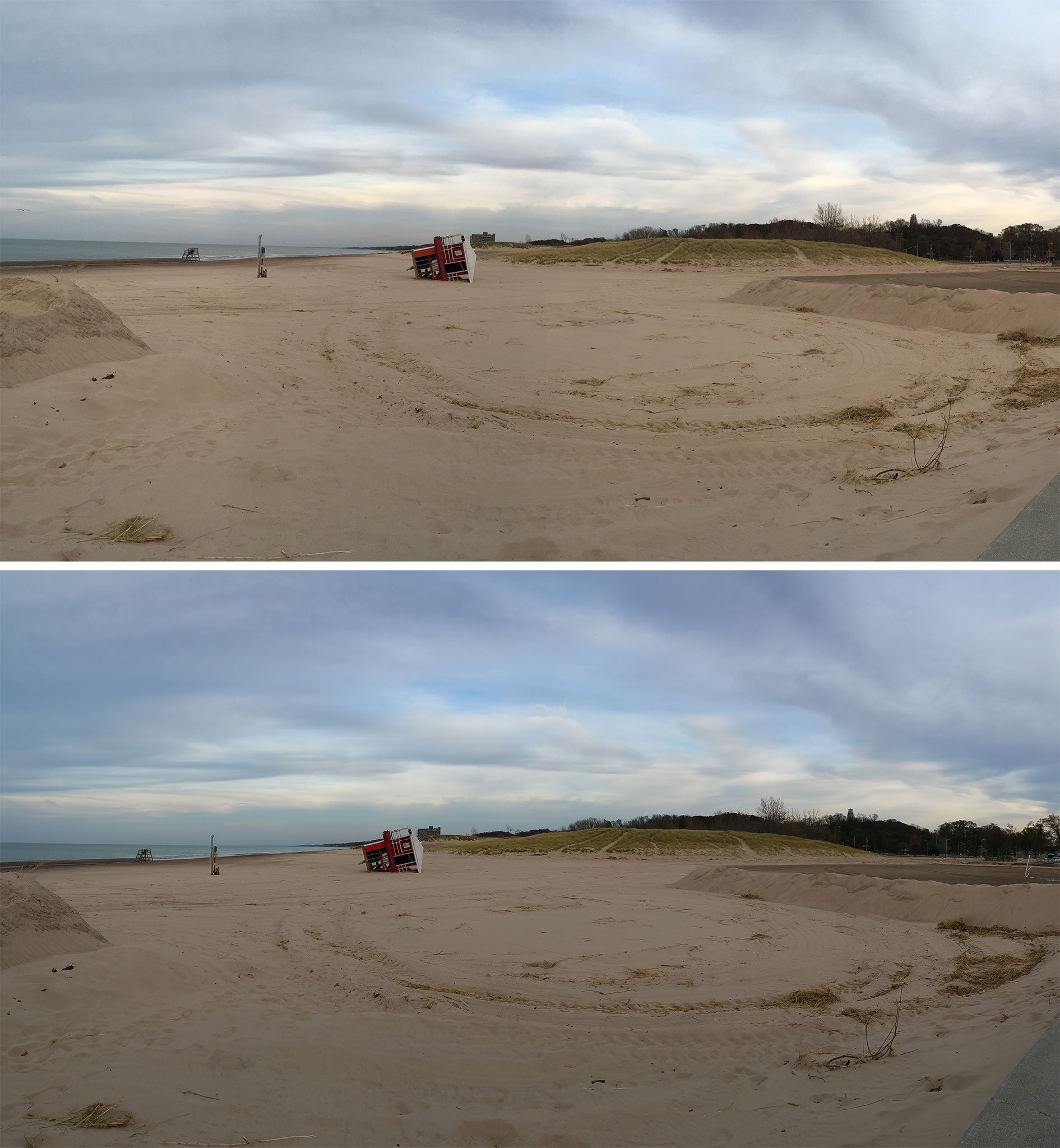
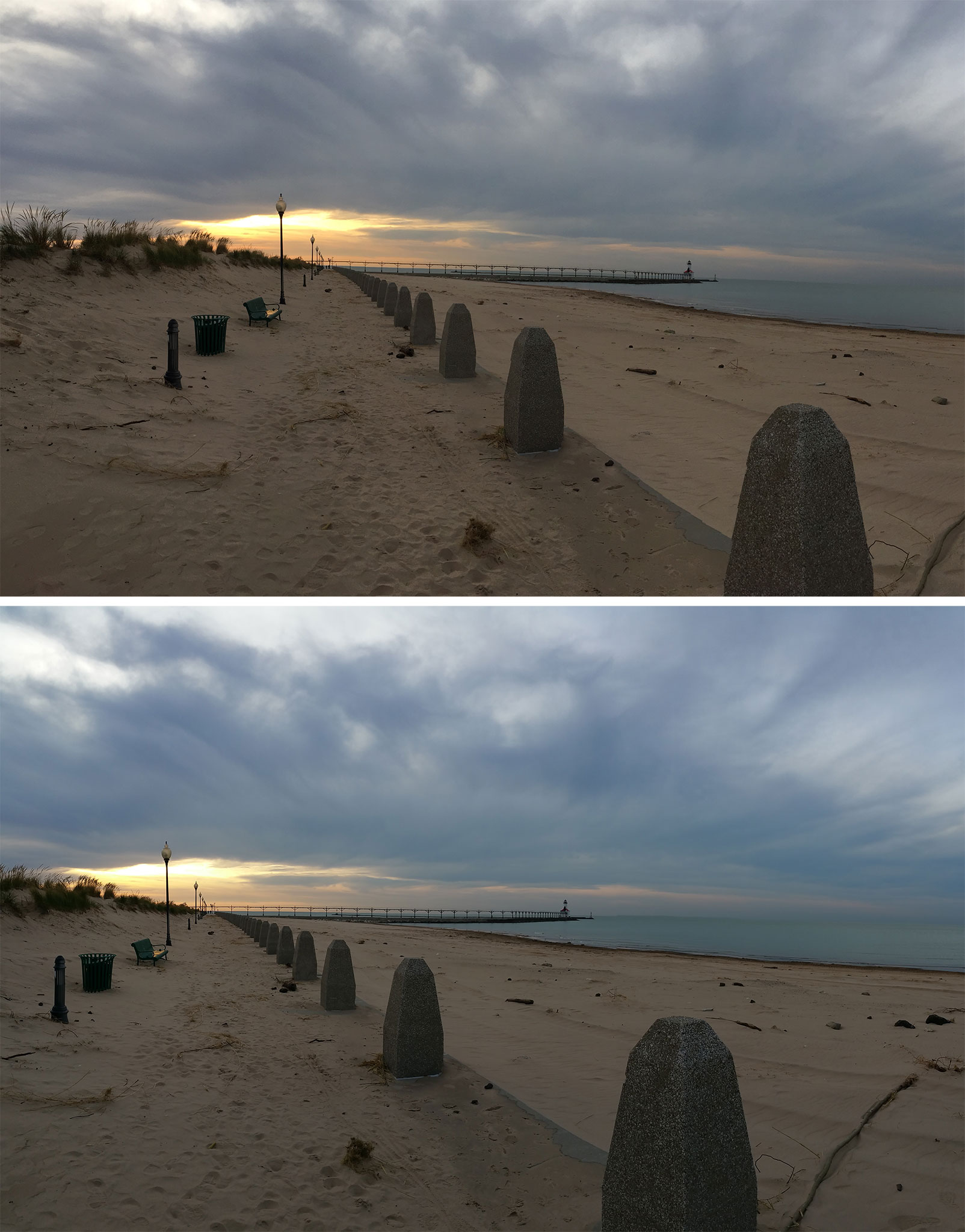

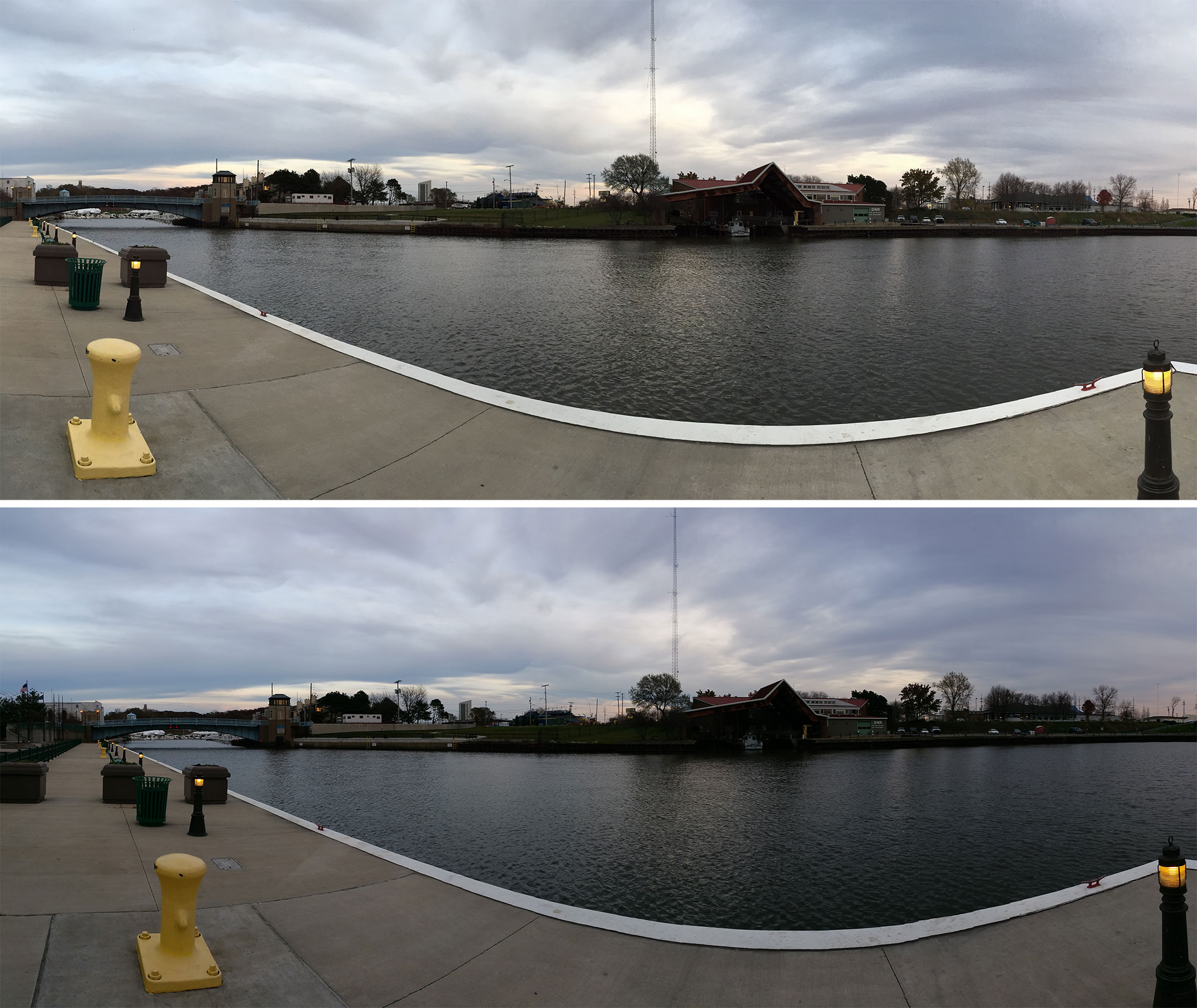
Both the iPhone 6 Plus and the Galaxy Note 4 take panoramas in the same way and live stitch using software magic. Both do a good job too. The only difference I consistently noticed was that the iPhone 6 Plus does a better job at producing panos that are slightly brighter and better balanced. For example, the last two panos show fairly well that the iPhone 6 Plus does a better job balancing exposure. The Note 4 samples are more than useable, and are even great images, but it'd be nice if Samsung could issue an update that'd maybe help balance exposure in panos slightly better. The darker is gets outside, the more noticeable the difference becomes.
Winner: iPhone 6 Plus
EXIF data from last photo in set:
Again, I was unable to retrieve any shutter speed and ISO data from the Note 4 on any pano samples.
| Header Cell - Column 0 | iPhone 6 Plus | Galaxy Note 4 |
|---|---|---|
| Shutter Speed | 1/430 | ? |
| ISO | 125 | ? |
| Aperture | 2.2 | 2.2 |
| Focal Length | 4.15mm | 4.8mm |
iPhone 6 Plus vs Galaxy Note 4: The bottom line
Smartphone cameras are getting so good these days that most differences are negligible. However, there are some subtle differences between the iPhone 6 Plus and Note 4 that may make one or the other a better choice for you. Overall, the iPhone 6 Plus produces much warmer images than the Note 4. This is completely a personal preference for most folks but something you should take into serious consideration if you lean strongly one way or the other. If you like warm tones, you're better off with the 6 Plus. If you lean towards cool tones, you'll most likely favor the Note 4.
Looking past these differences, it really comes down to how you use your camera and how you want to interact with your photos. If you take lots of selfies and find yourself using digital zoom quite often, the Note 4 out-performs the iPhone 6 Plus in terms of hardware. If you like experimenting with your photos and alternative camera apps, there's no denying the App Store has the best collection available, partially thanks to camera and photo extensions in iOS 8.
A camera is only one part of the puzzle when it comes to choosing a smartphone that's best for you. So if you're still undecided on which one you should buy, hit the links below to check out our full reviews of both devices both here on iMore and on our sister site, Android Central.
Regardless which device you ending up choosing, the iPhone 6 Plus and the Galaxy Note 4 are both cameras you can be proud to have in your pocket.
See also:
- iPhone 6 Plus review
- Samsung Galaxy Note 4 review
iMore senior editor from 2011 to 2015.

